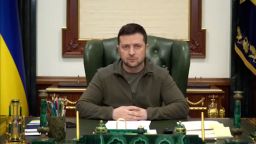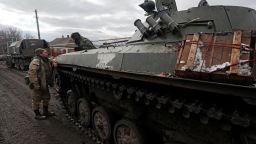A tense and fleeting evacuation from Ukraine’s northeastern city of Sumy took place on Tuesday after Russian airstrikes killed 21 people, including two children, the night before, Ukrainian authorities said.
Ukrainian officials confirmed that an evacuation corridor allowing residents out of the city opened on Tuesday morning, following days of sustained Russian attacks. It came as the United Nations estimated that more than 2 million refugees have fled Ukraine since Moscow’s invasion on February 24.
The agreed ceasefire was set to last until 9 p.m. local time (2 p.m. ET), with final evacuations taking place 90 minutes before that time. Buses have been used to take people to Poltava, around 100 miles away in central Ukraine, said Dmytro Lunin, head of the Poltava regional administration, on his Telegram channel on Tuesday.
One convoy was delayed by an outbreak of firing at the outskirts of Sumy, according to the city’s regional head, Dmitry Zhyvitsky. But Zhyvitsky was quoted in local media as saying the Russian forces did not shoot on the convoy.
“At the moment, citizens are being evacuated by their own vehicles,” Zhyvytsky said on Telegram. “After 19:30 the checkpoint closes and it will be impossible to leave Sumy.”
The frantic rush to escape the city, during a break in its assault by Russian forces, was not replicated in other cities. Officials across the country have condemned Russia in recent days for offering unfeasible routes of escape that lead to Russia or its ally Belarus, and for reneging on ceasefire agreements by opening fire on fleeing civilians.
Ukrainian Foreign Minister Dmytro Kuleba said on Tuesday that Russian troops are holding 300,000 civilians “hostage” in the besieged southern city of Mariupol, where he said a child died of dehydration.
Ukrainian authorities said that a long-awaited convoy of humanitarian aid to the city appeared to have come under fire on Tuesday. Russian troops are not allowing “children, women and the elderly” out of the city, and have launched an attack “precisely in the direction of the humanitarian corridor,” Ukraine’s Joint Forces Operation said.
CNN has been unable to verify the status of the convoy and has reached out to the Russian side for a response.
A senior US defense official said Tuesday that Mariupol as of now been “isolated” by Russian forces, though Russian forces are only still bombarding the city and are not inside it “in any significant way.”
CNN has previously reported that Mariupol residents have been cut off from water and electricity for days.
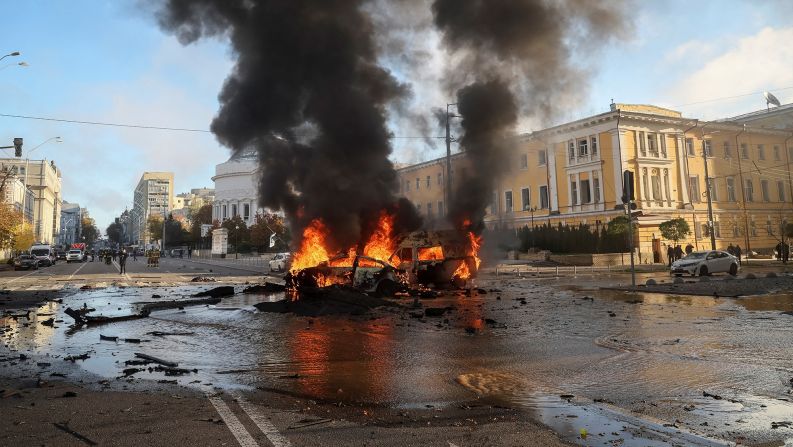
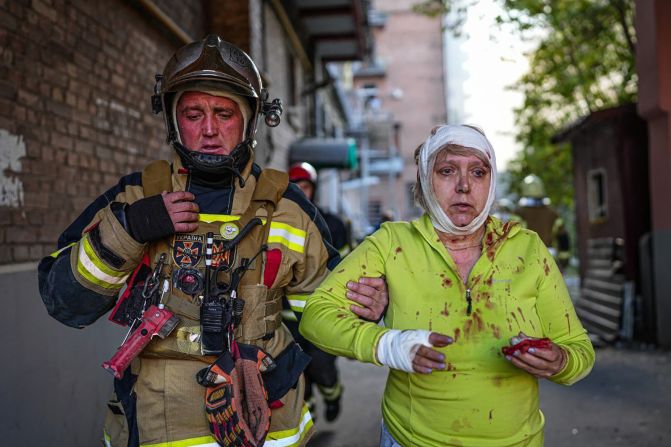
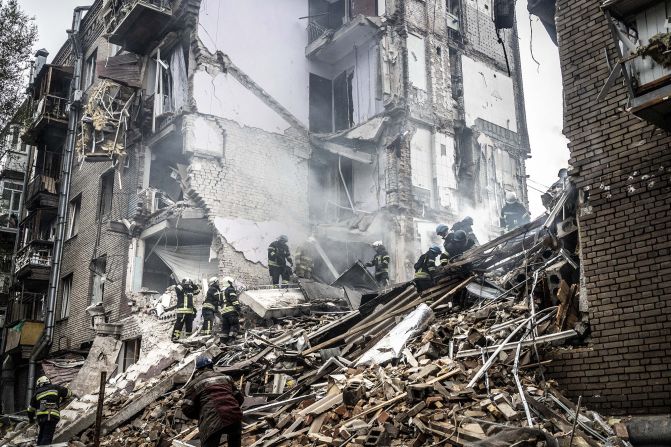
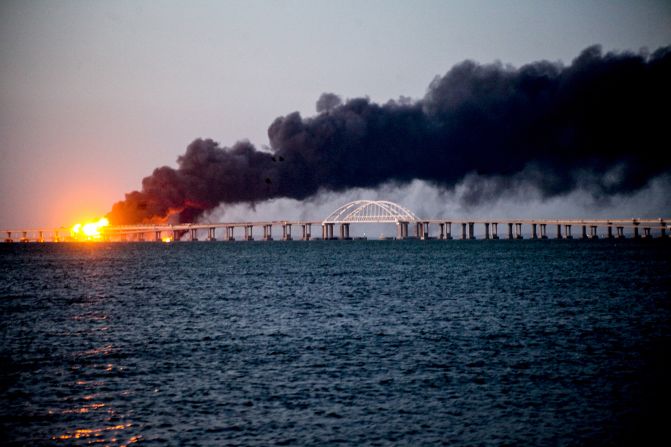
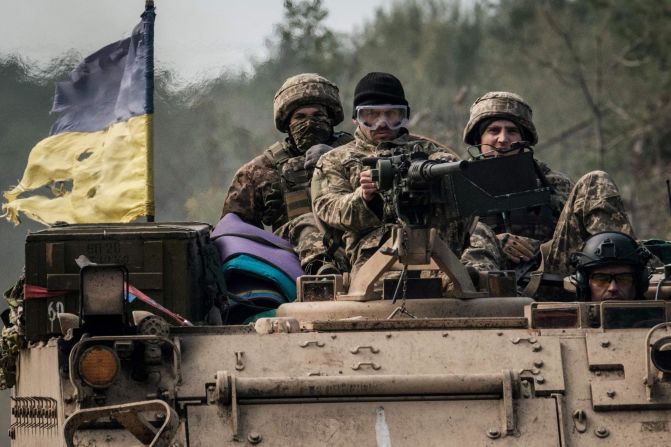
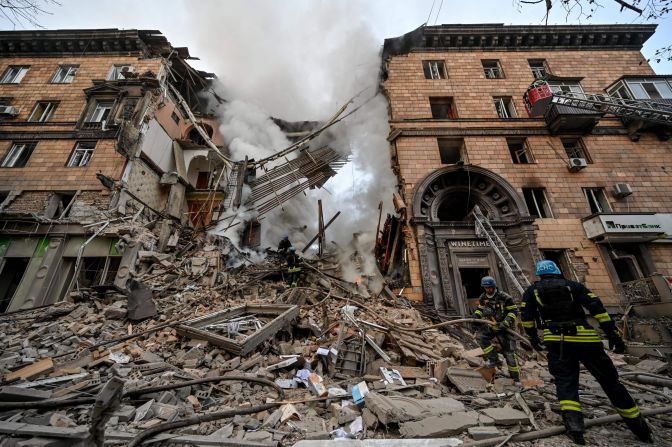
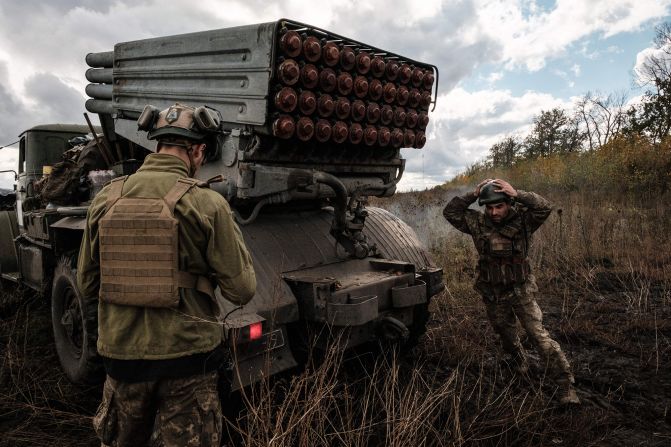
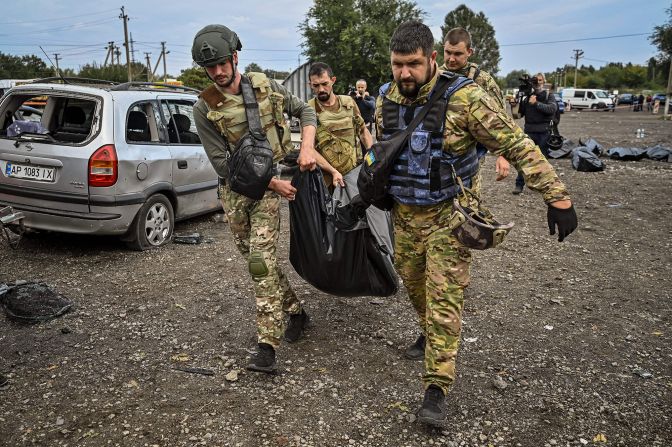
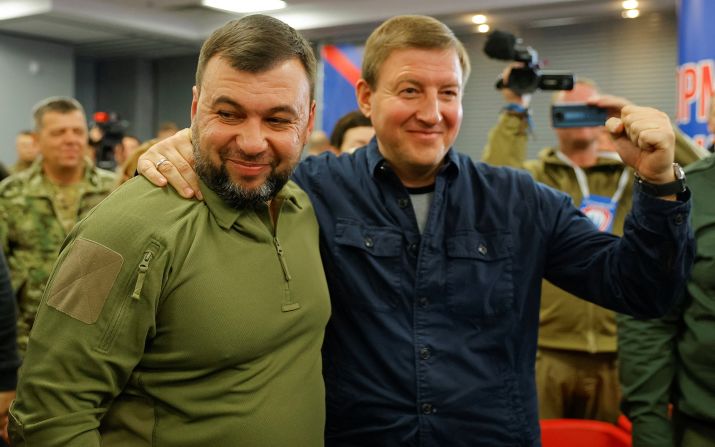
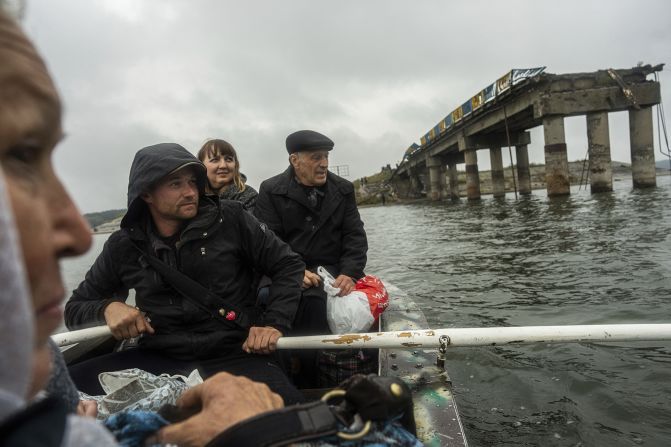
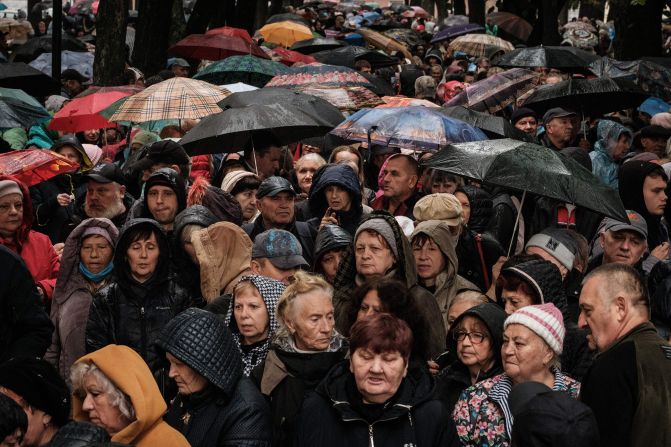
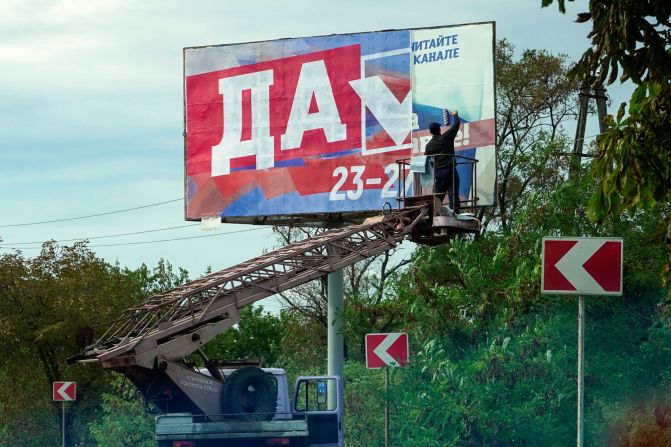
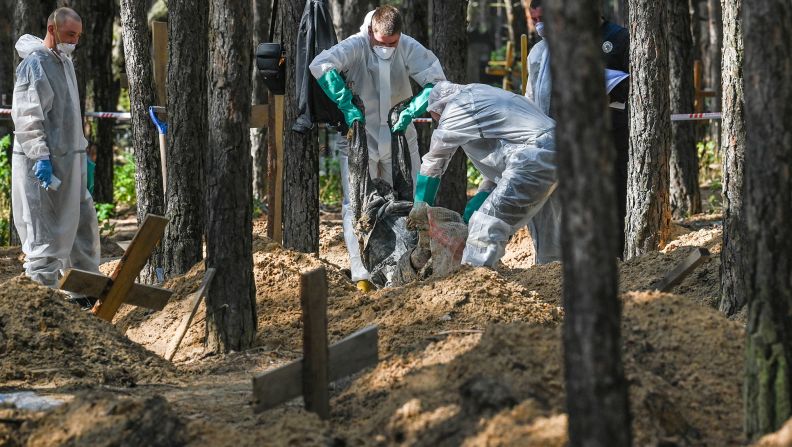
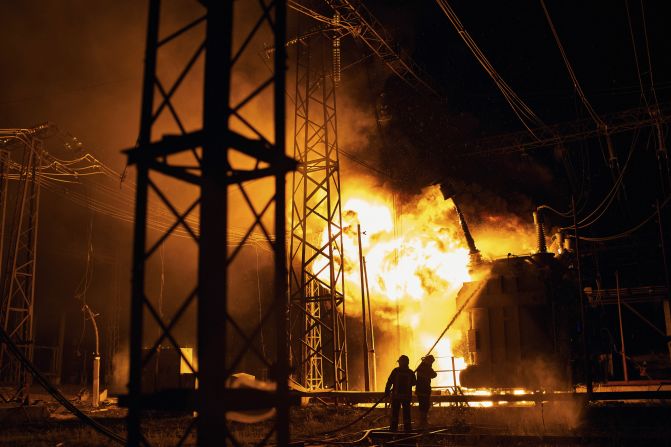
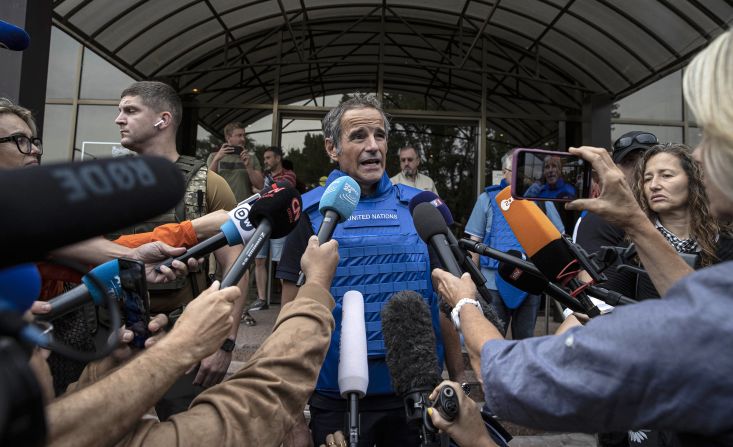
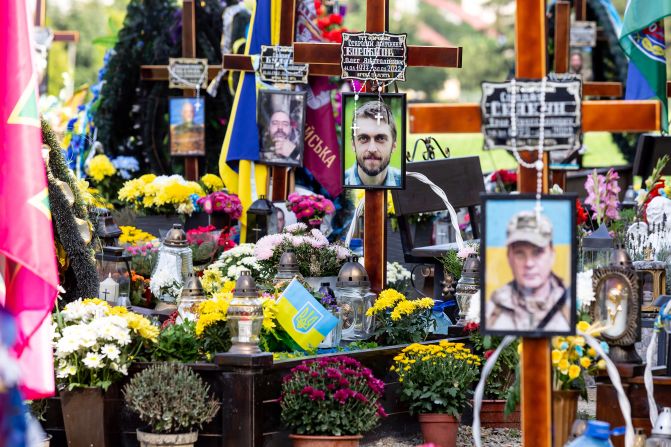
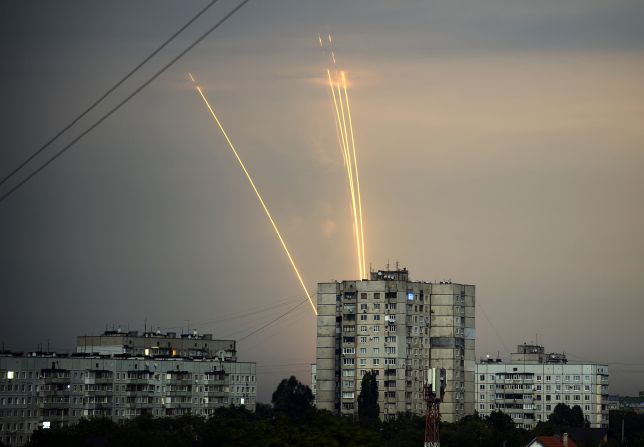
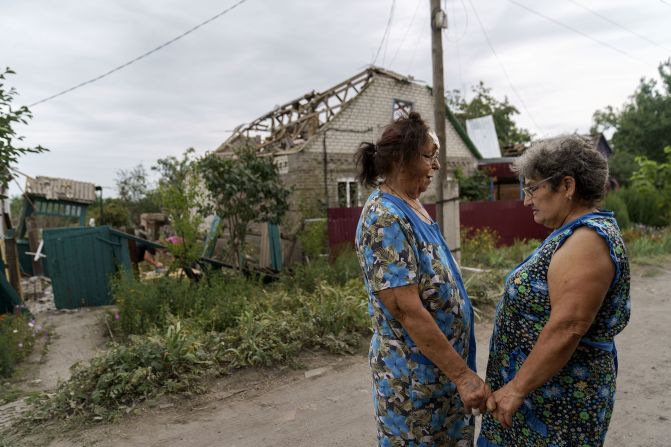
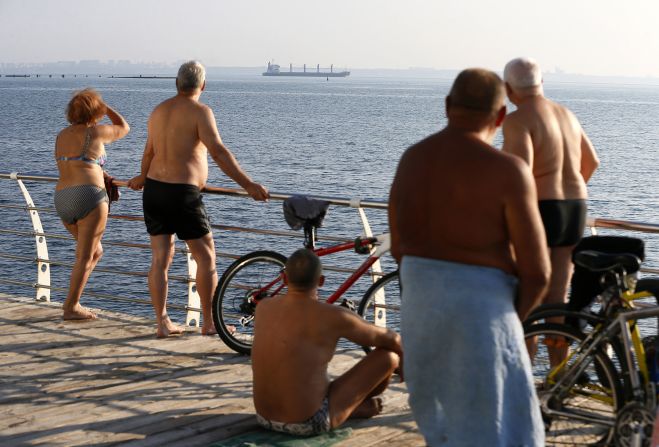
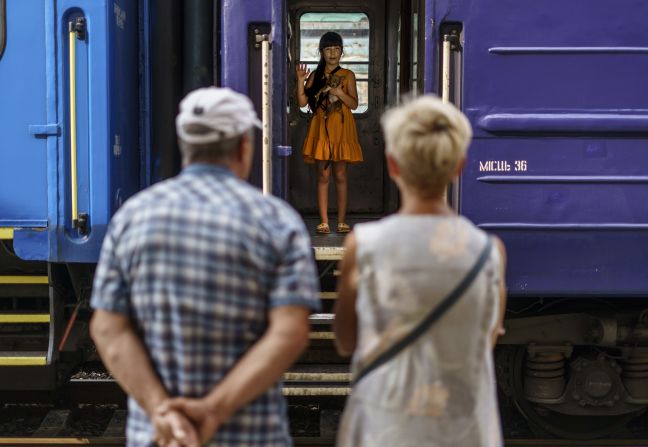
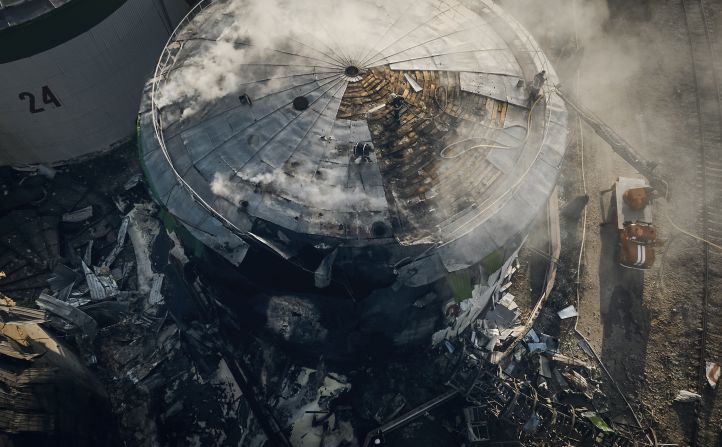
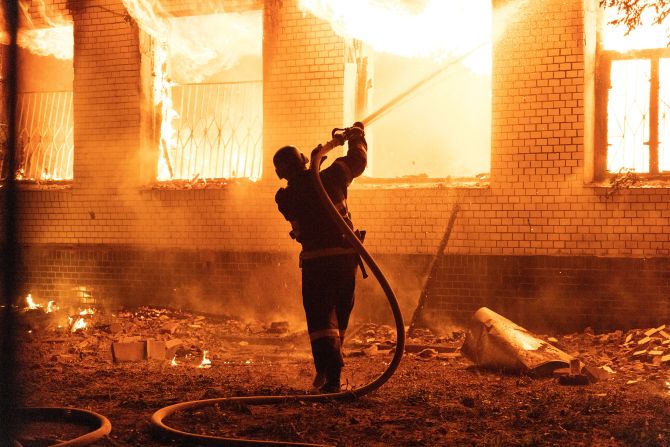
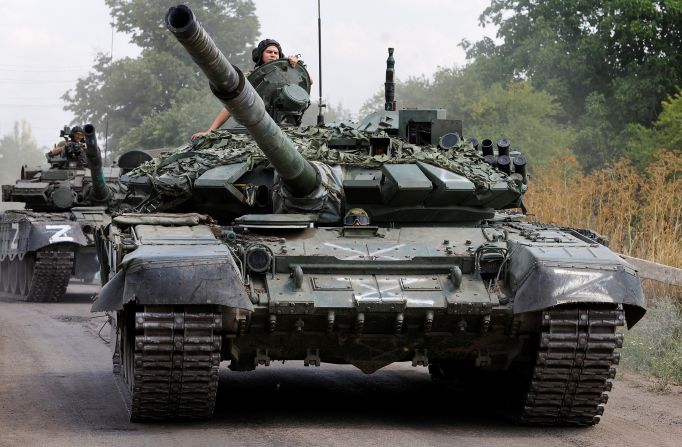
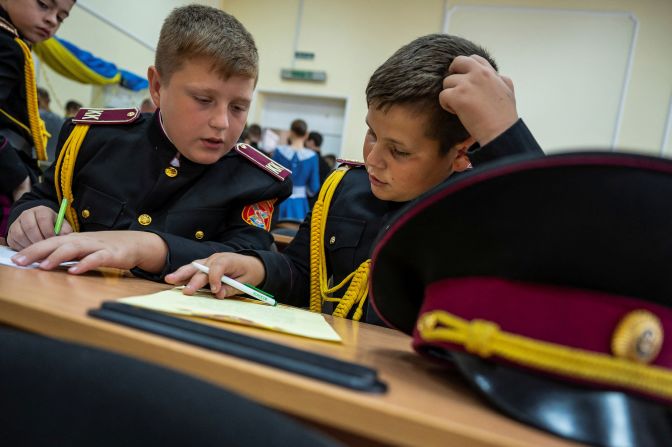
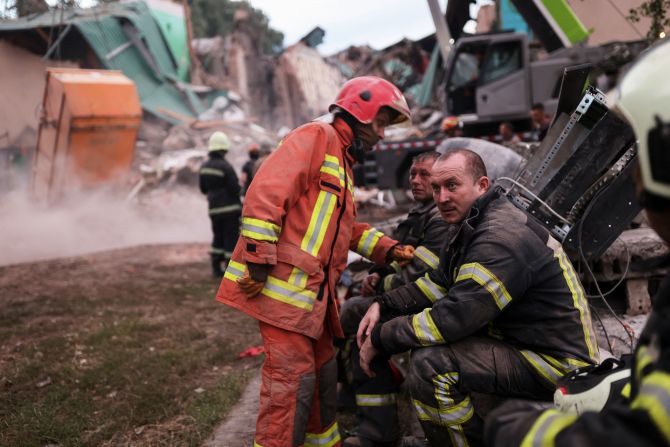
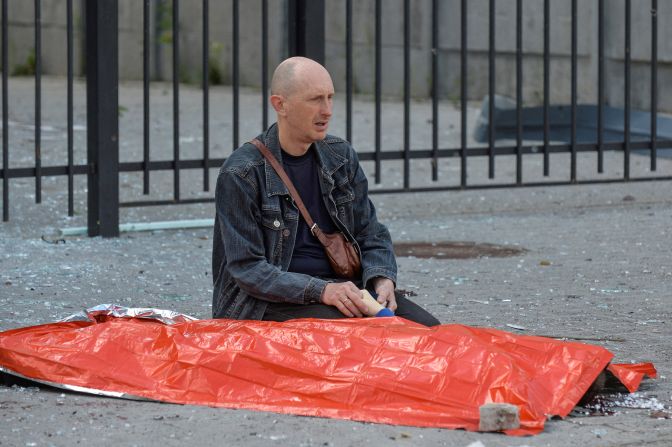
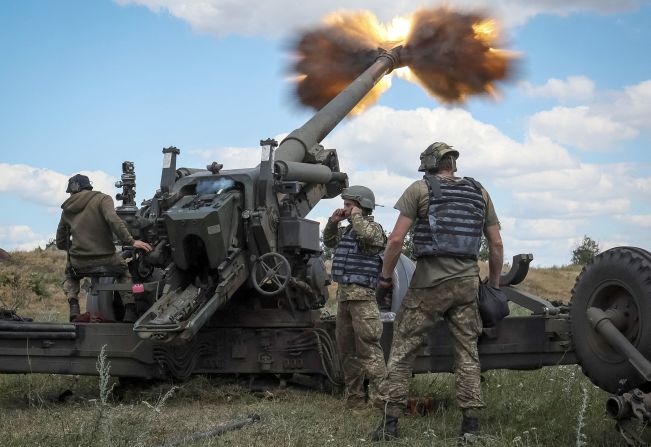
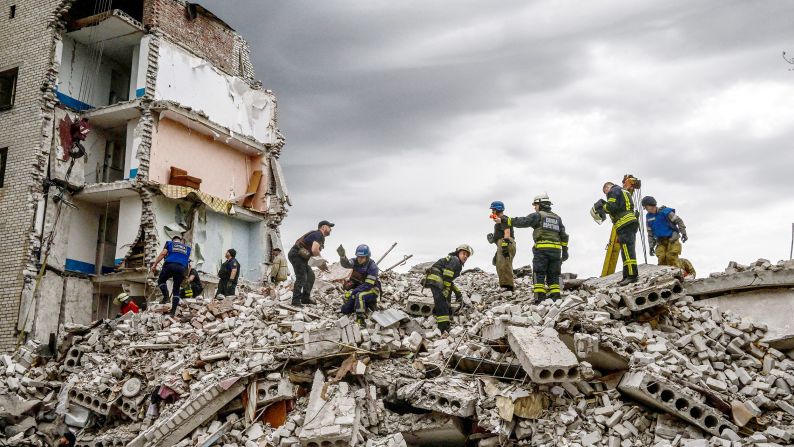
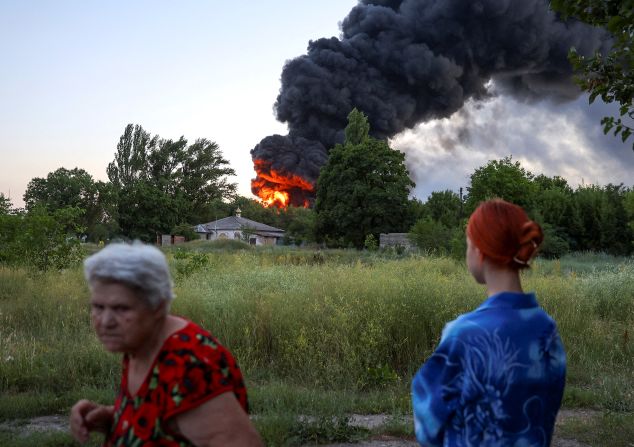
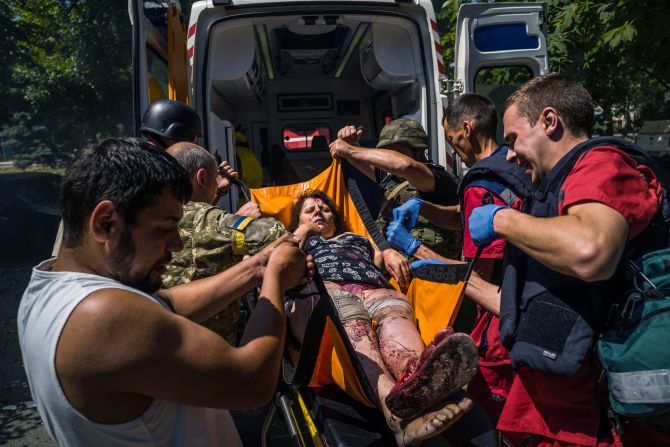
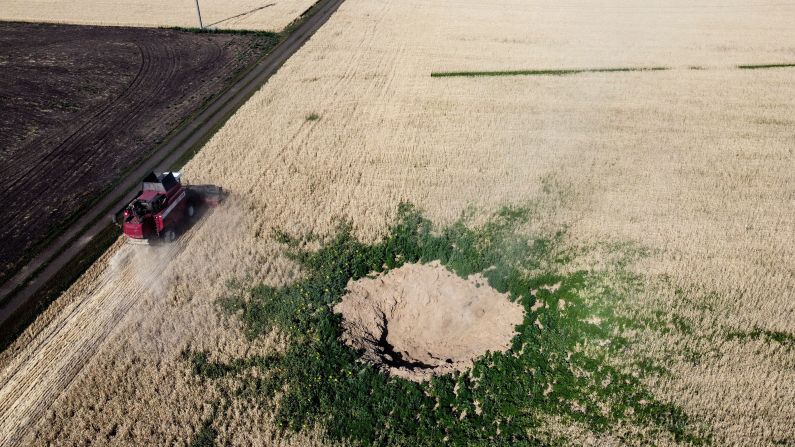
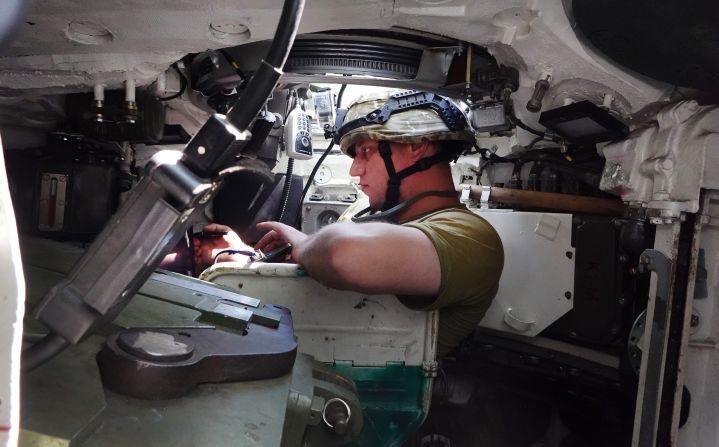
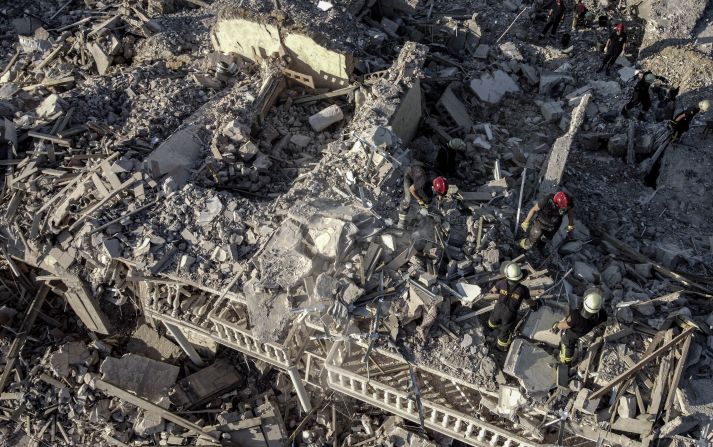
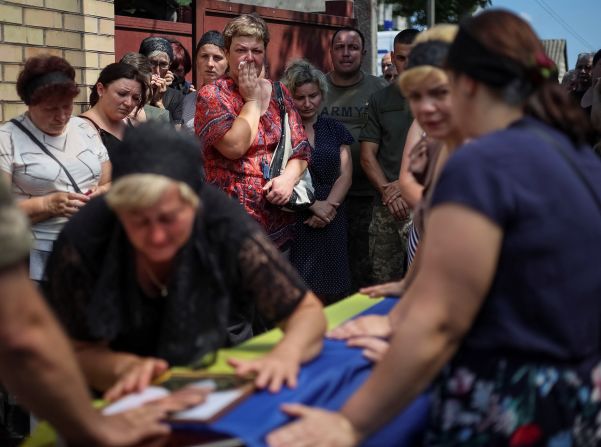
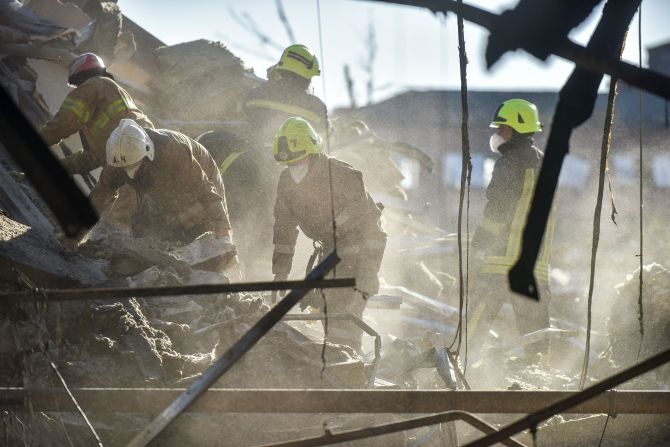
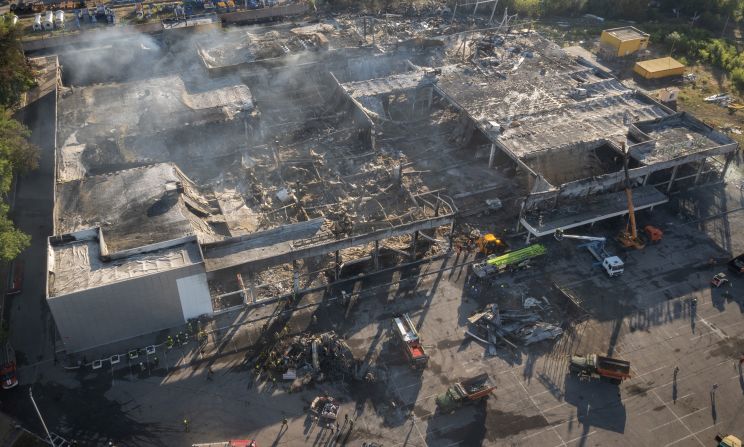
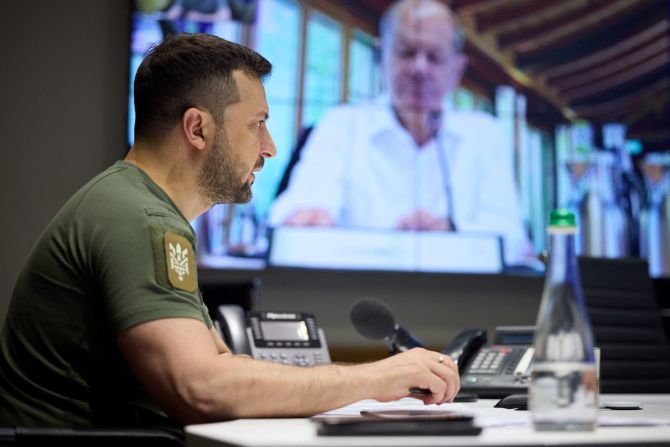
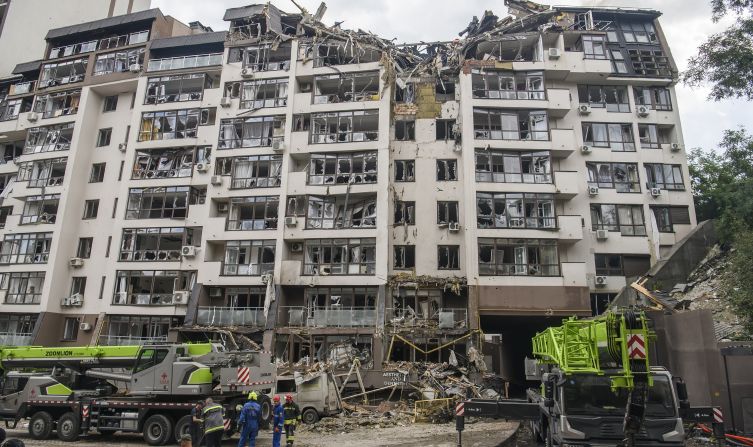
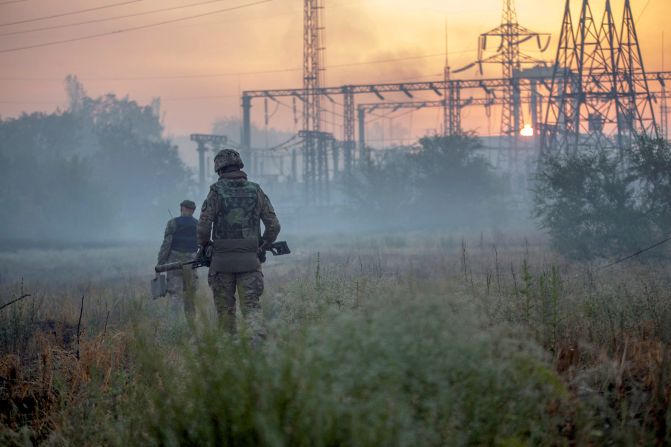
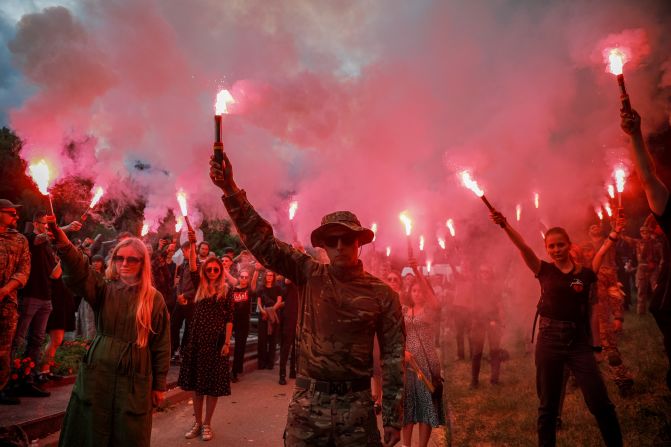
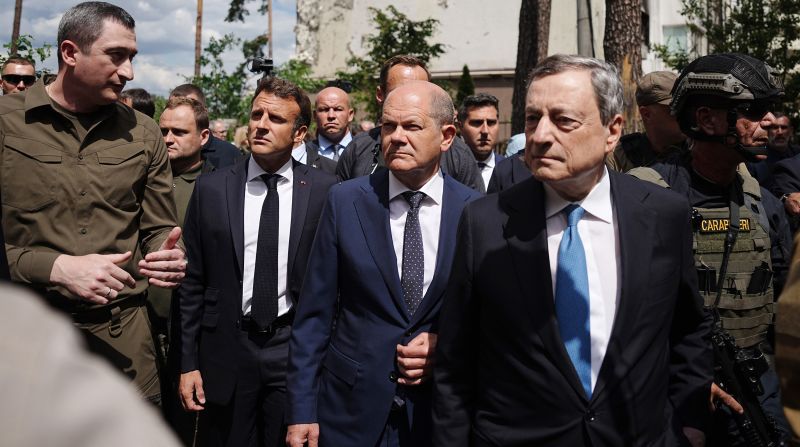
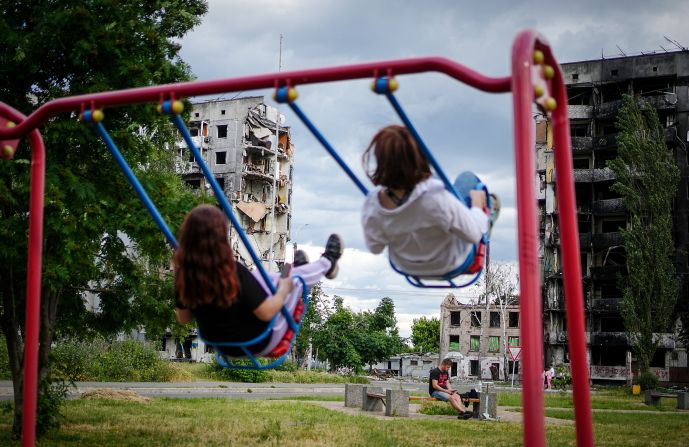
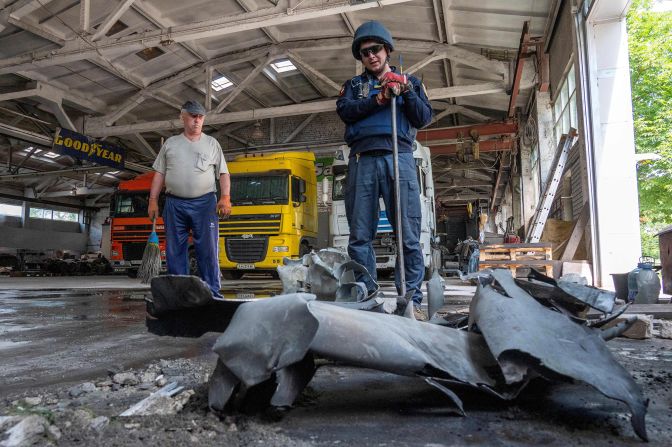
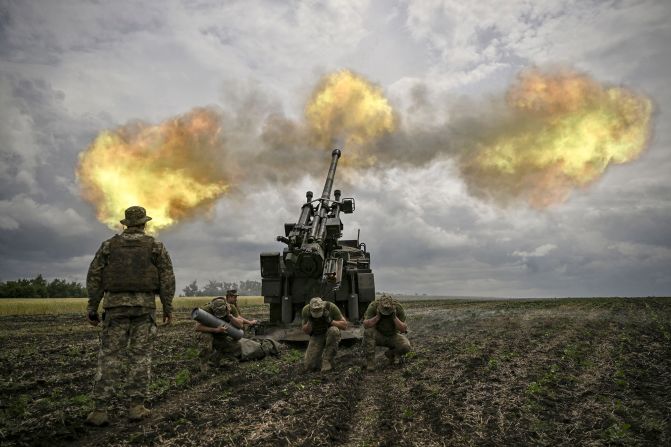
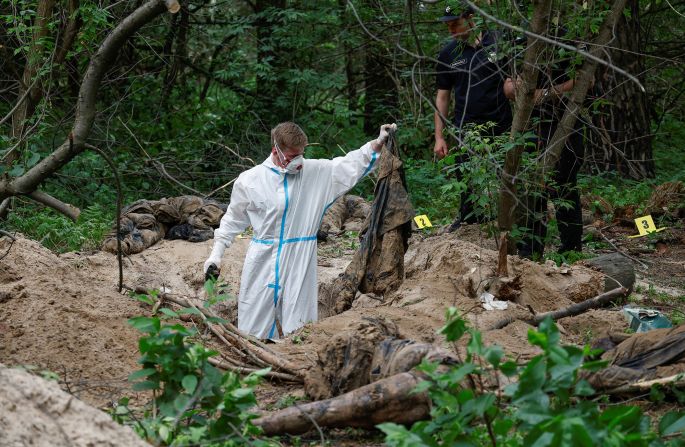
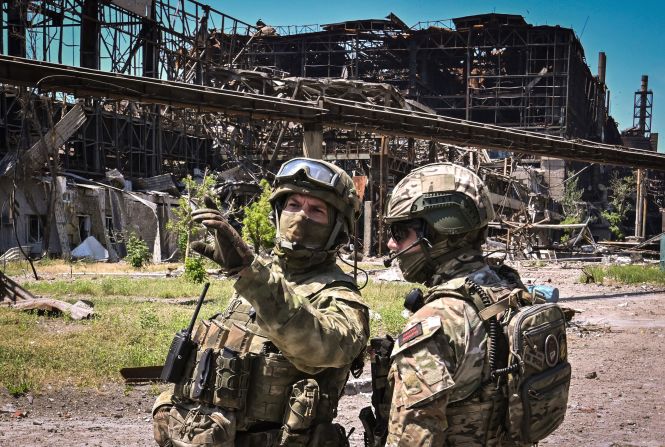
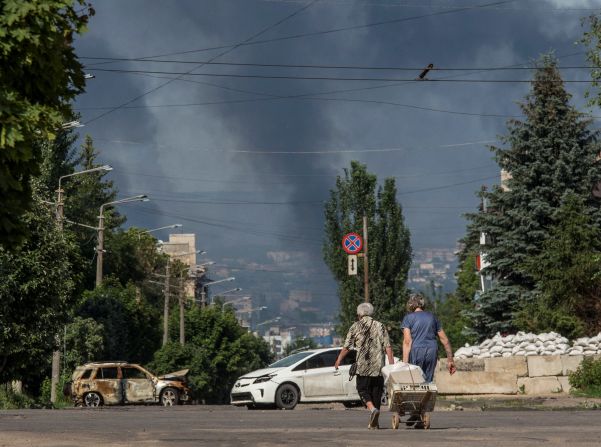
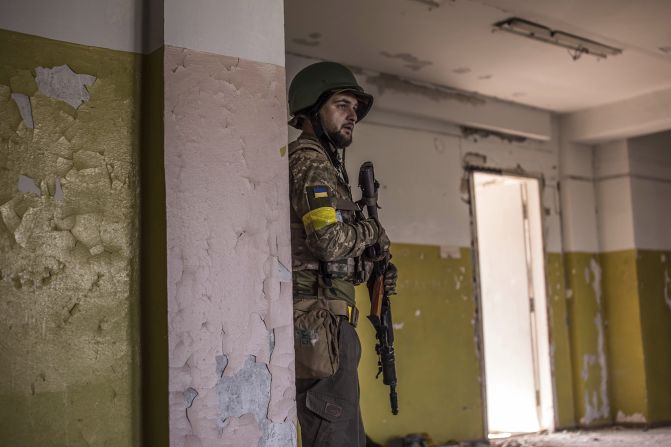
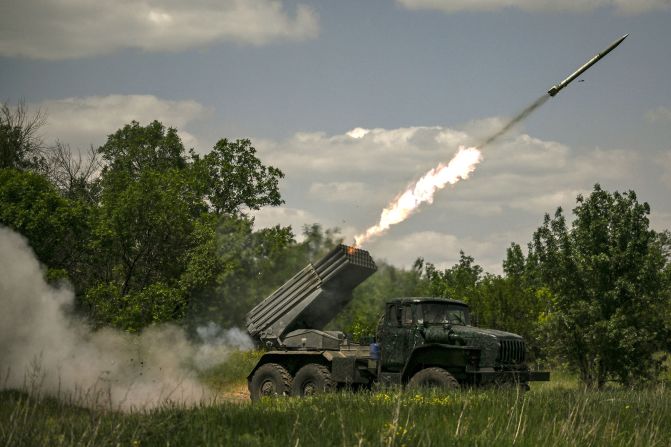
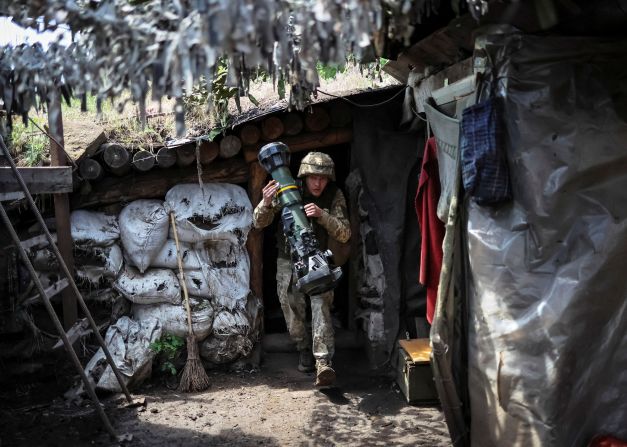
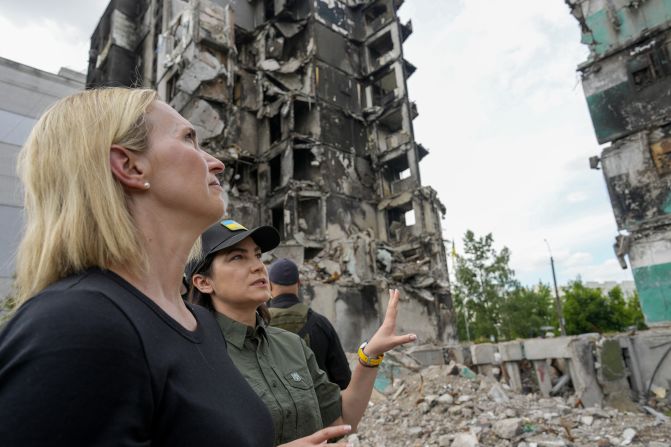
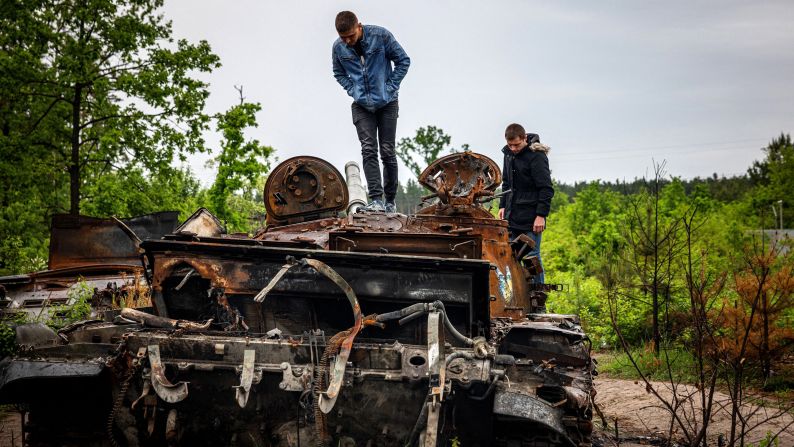
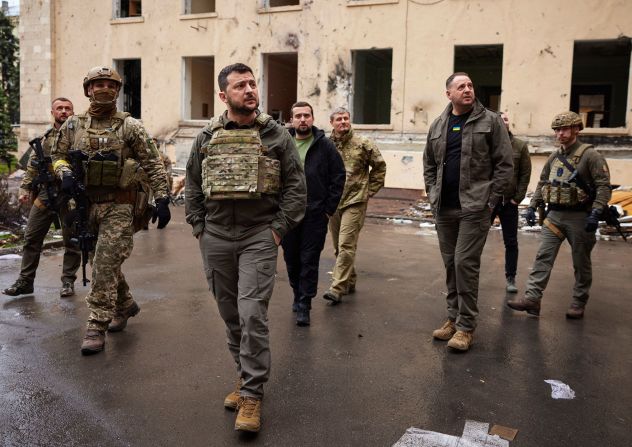
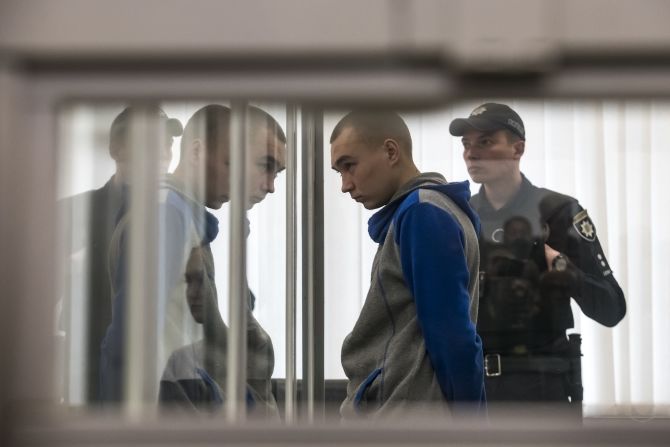
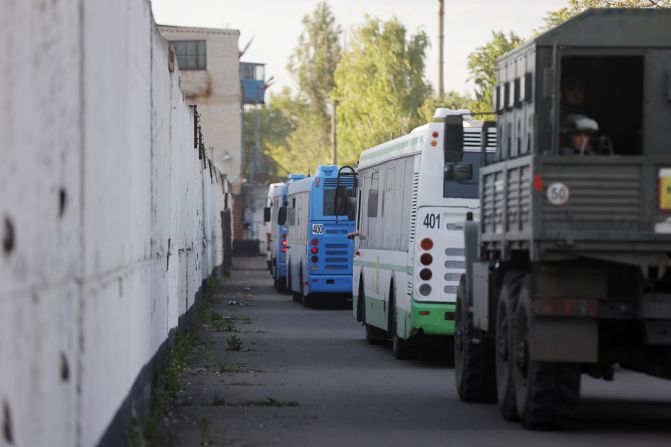
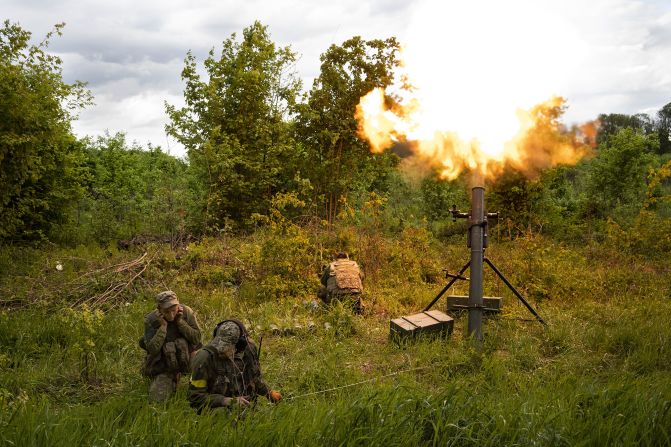
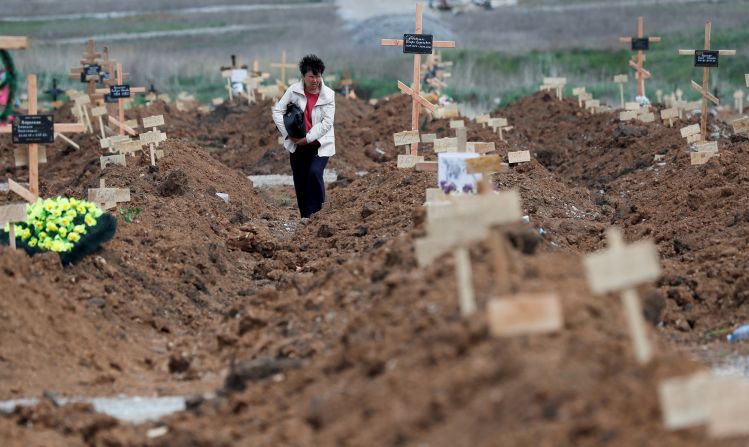
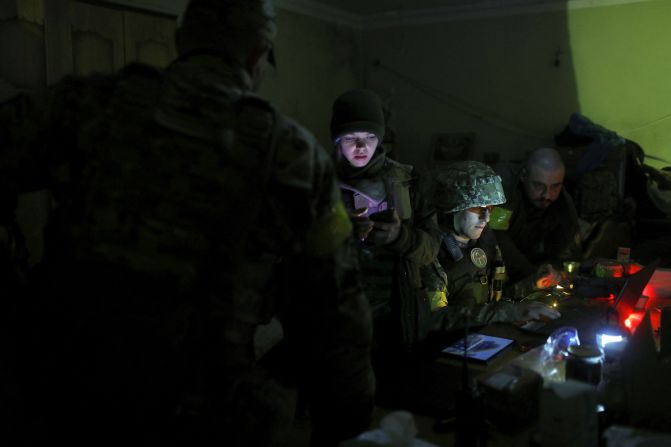
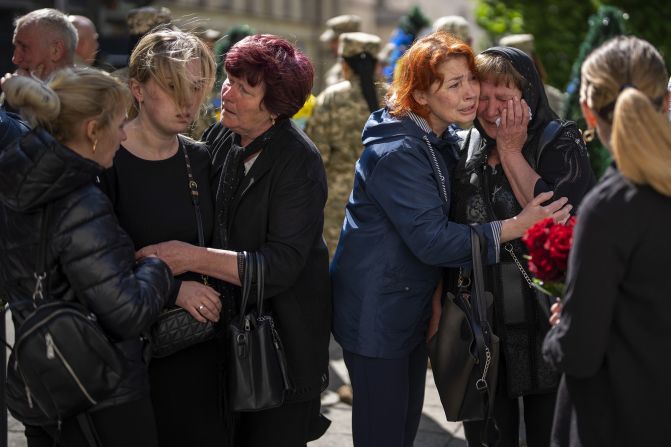
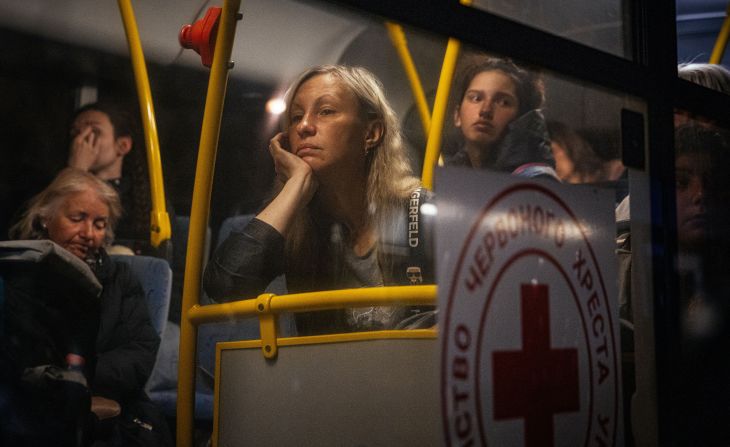
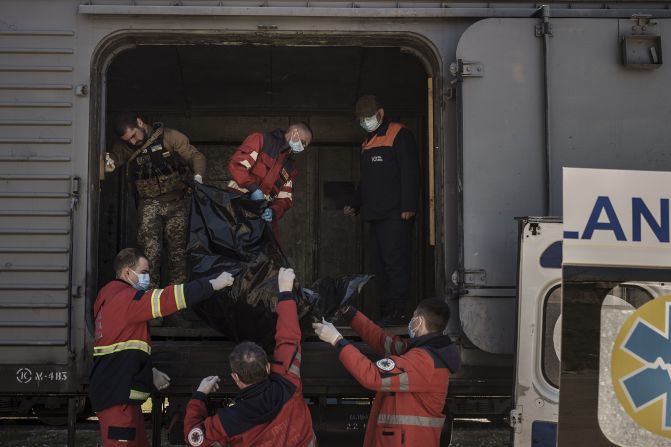
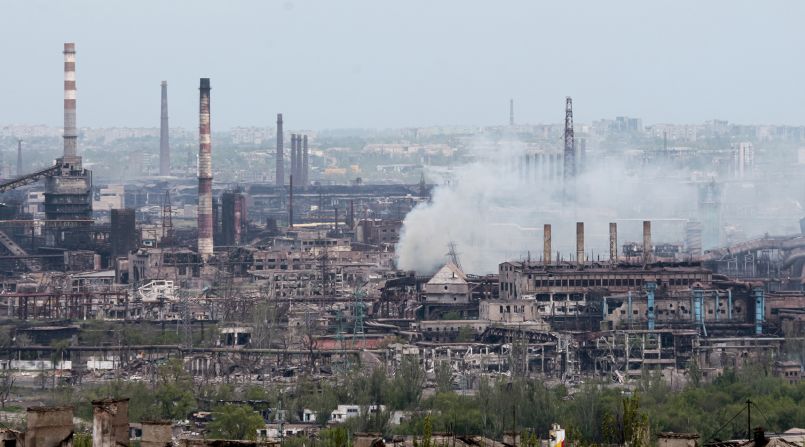
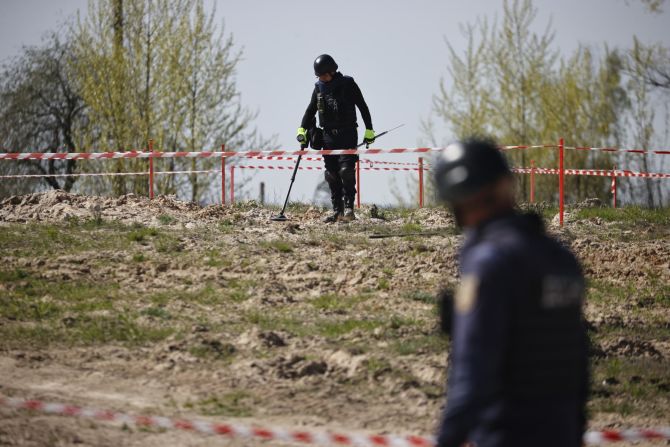
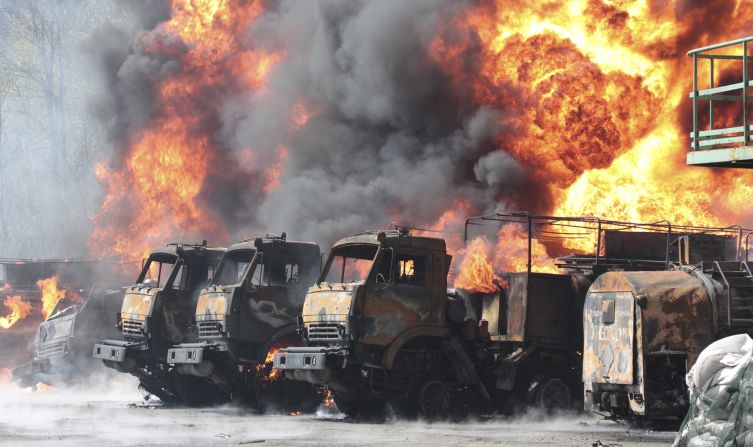
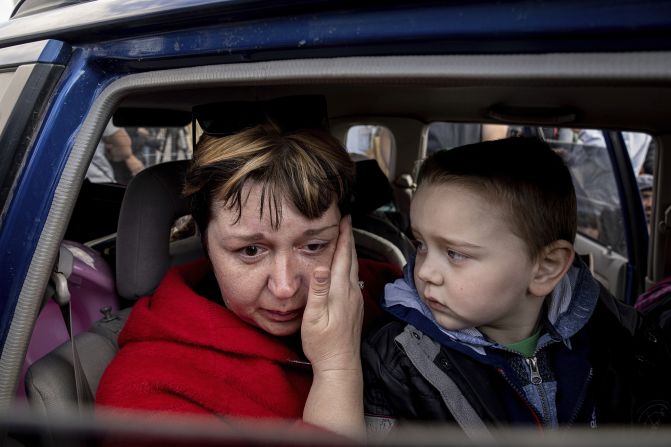
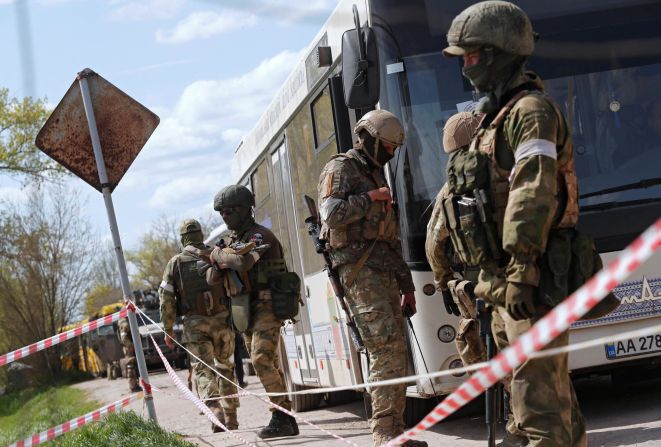
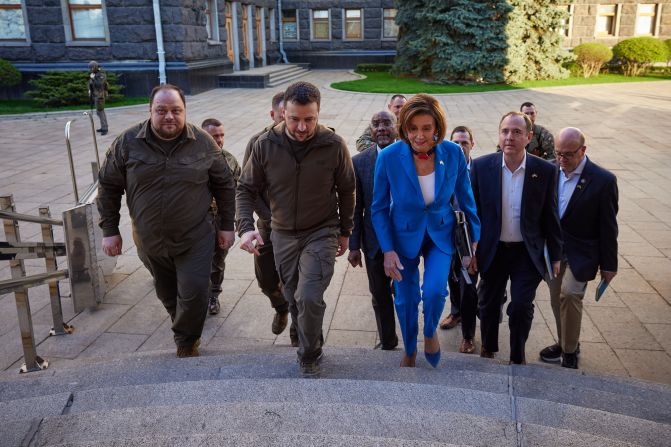
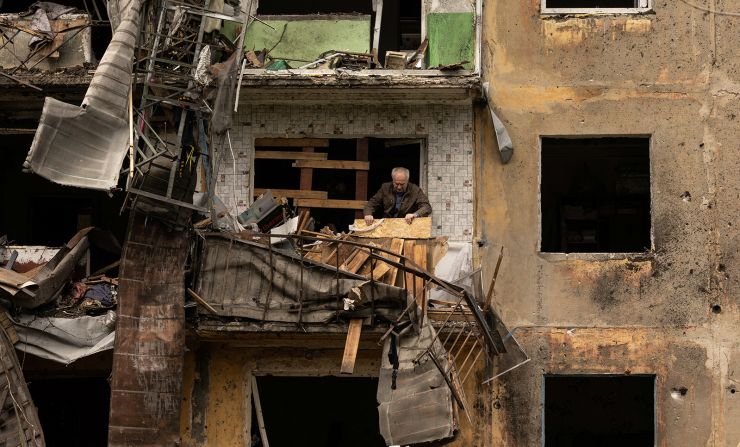
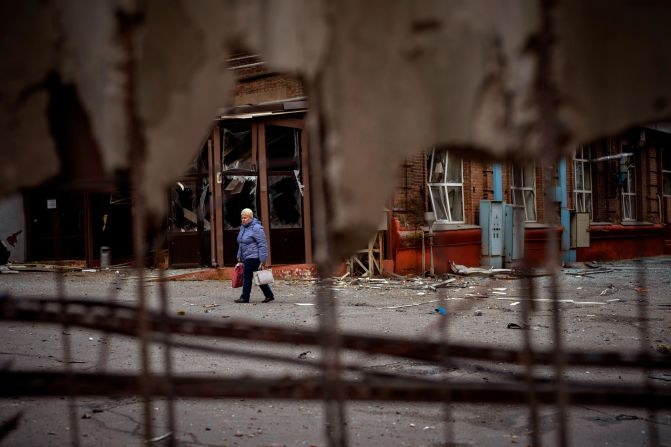
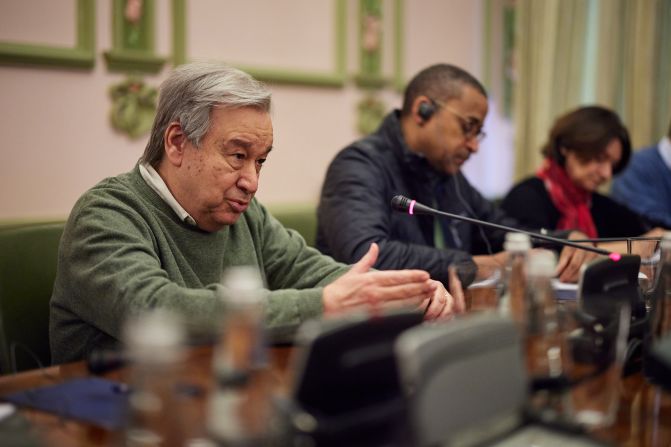
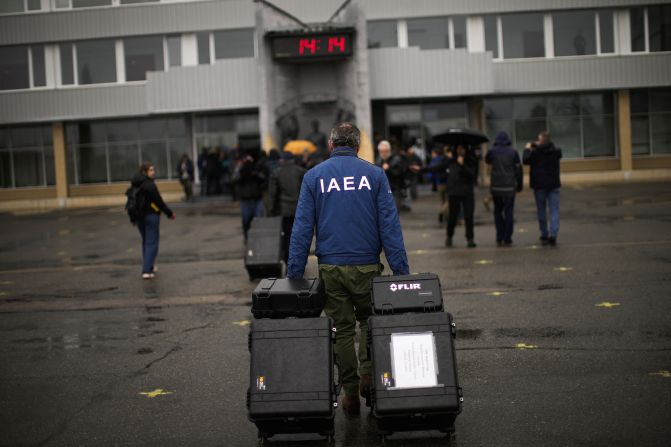
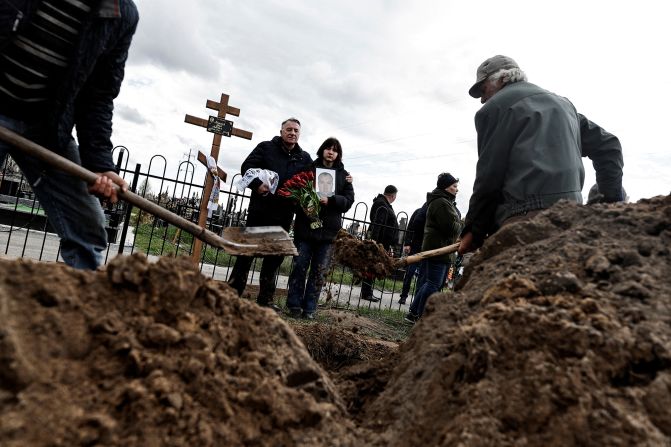
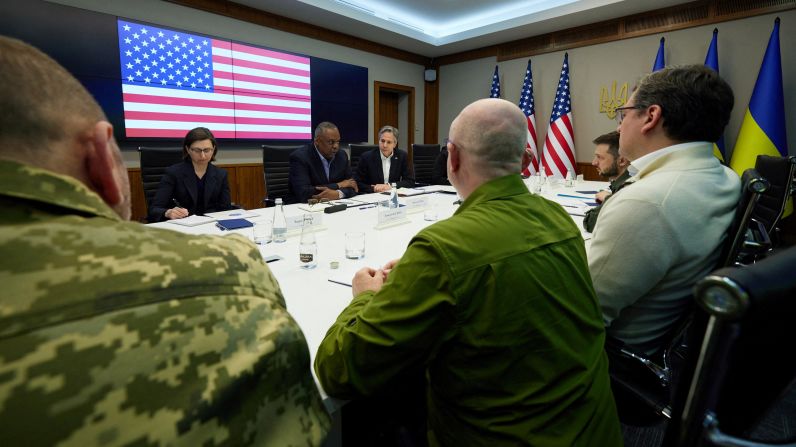
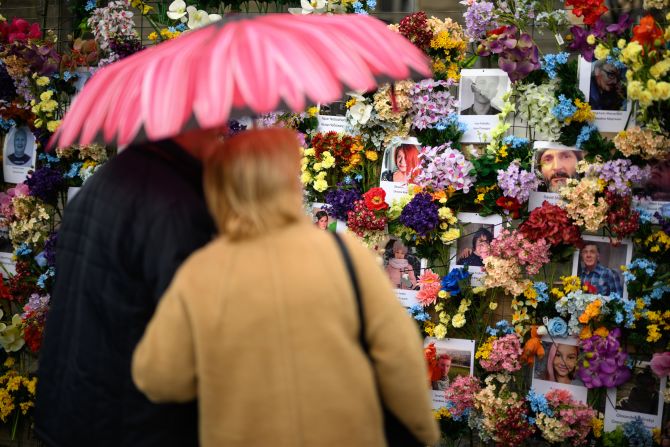
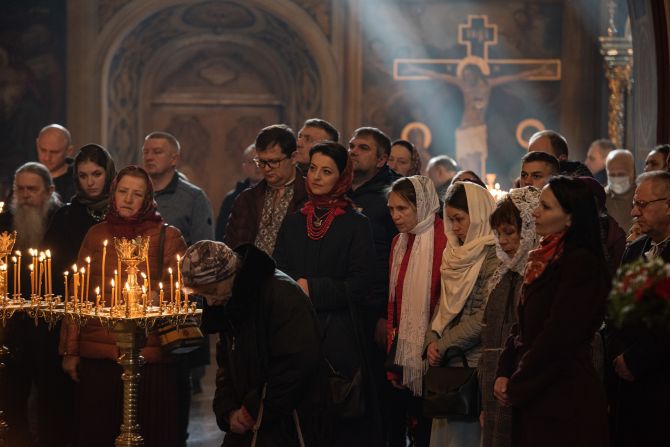
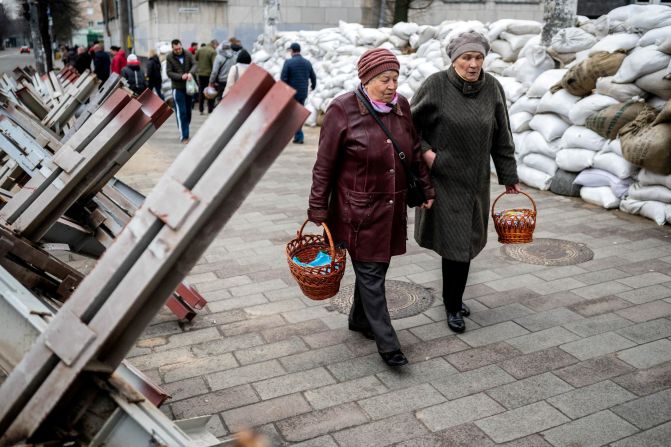
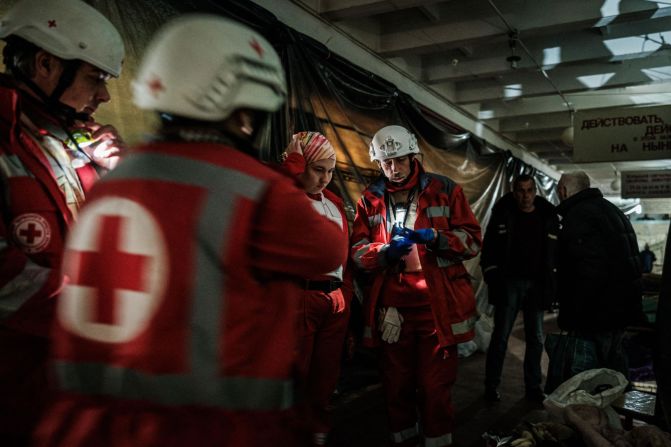
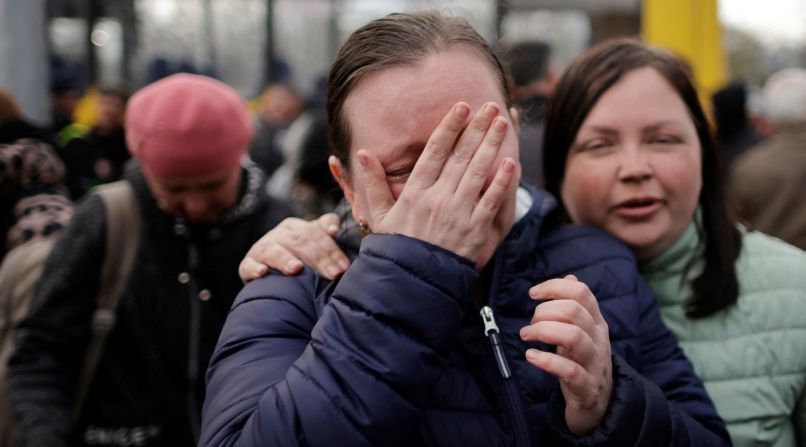
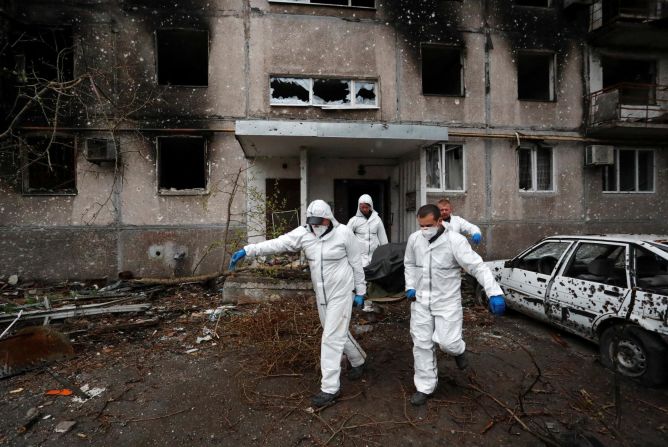
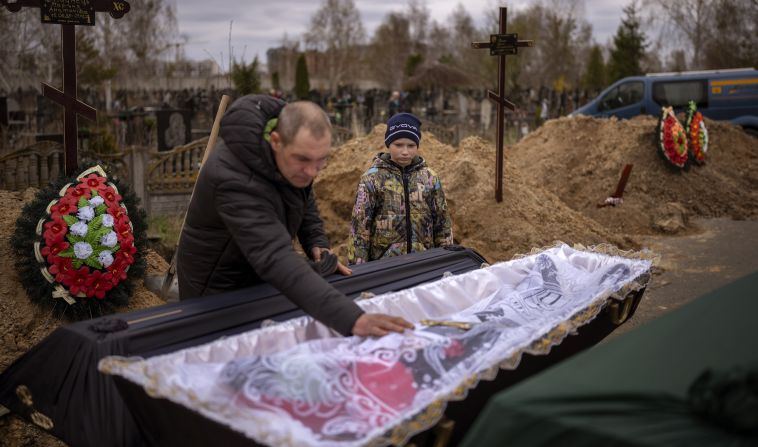
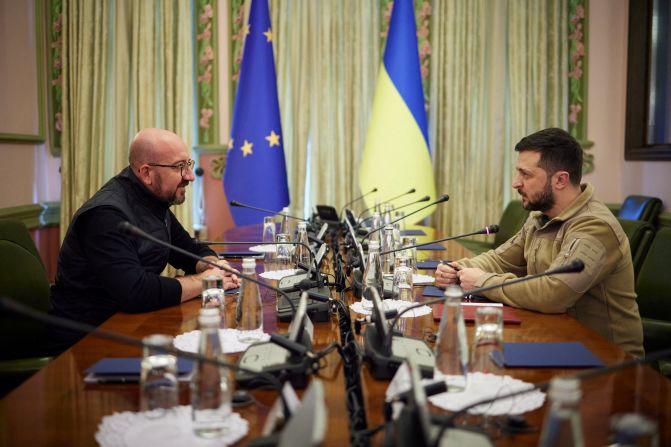
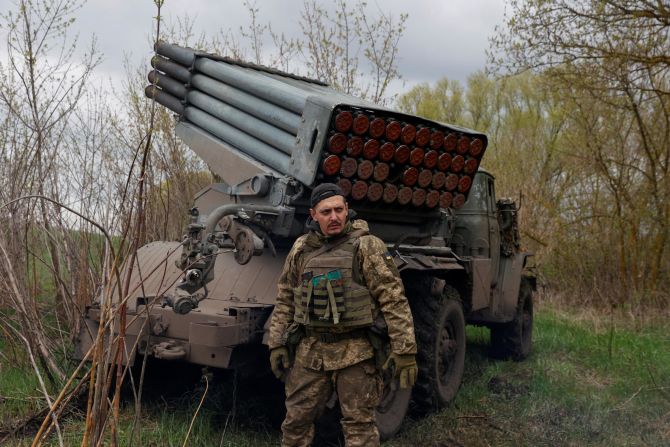
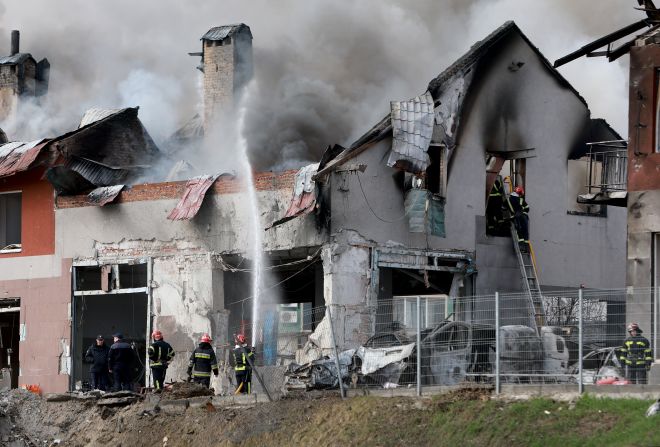
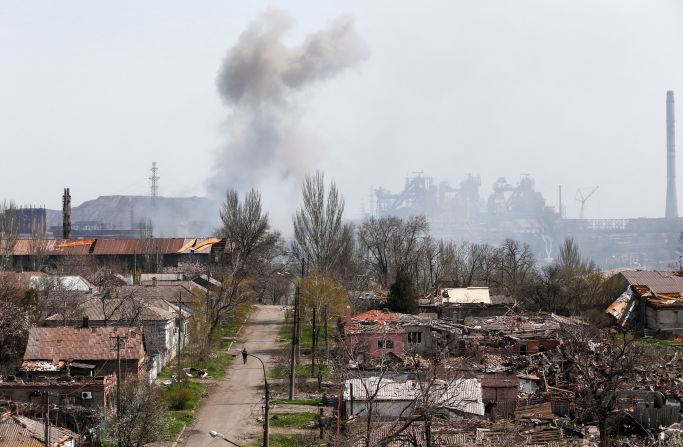
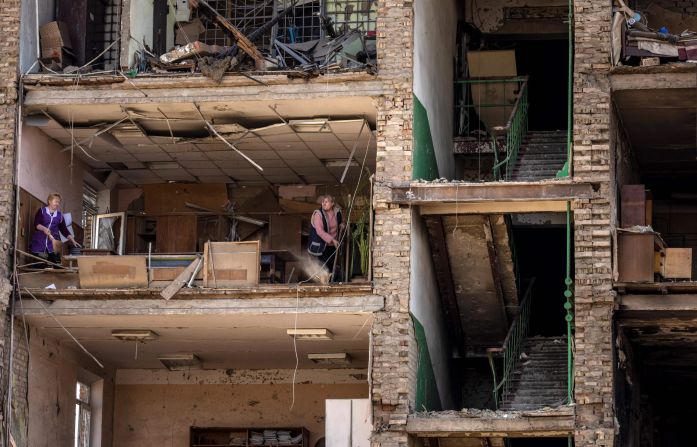
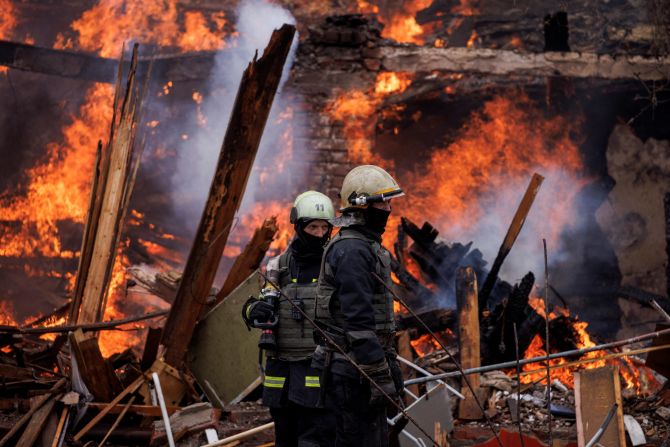
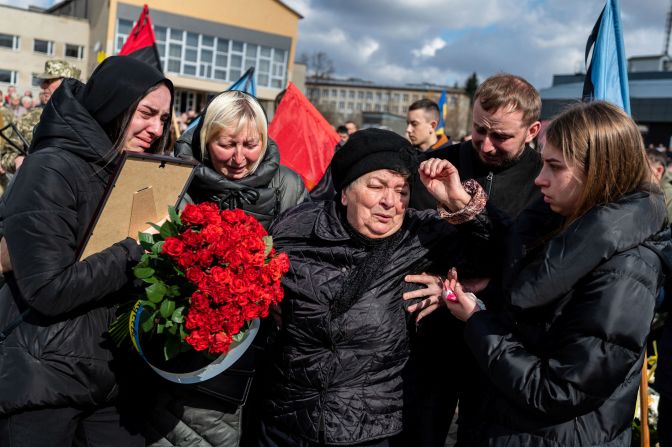
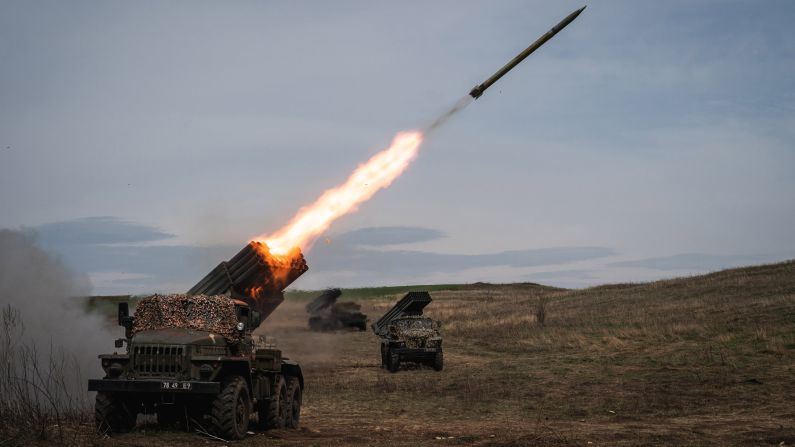
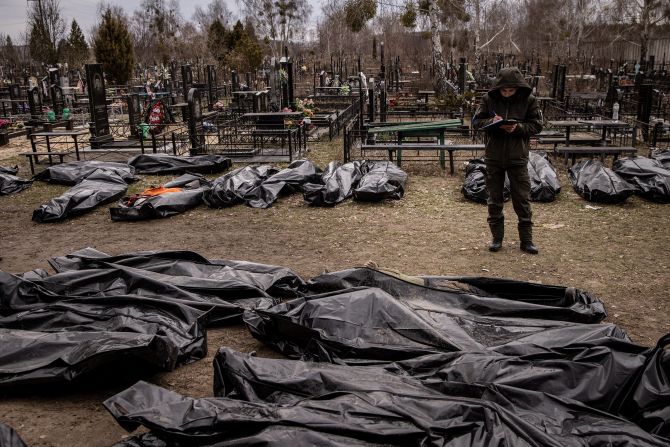
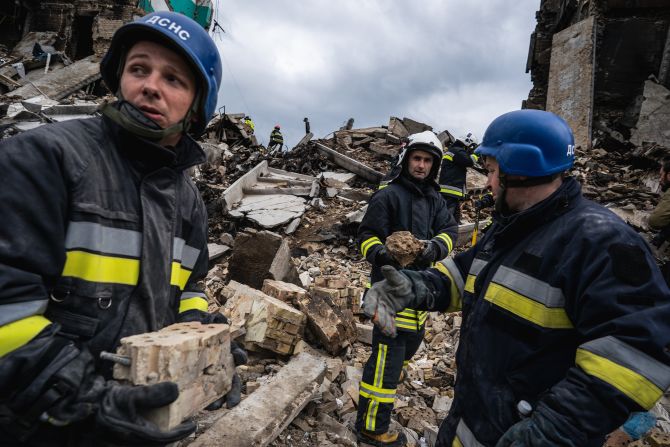
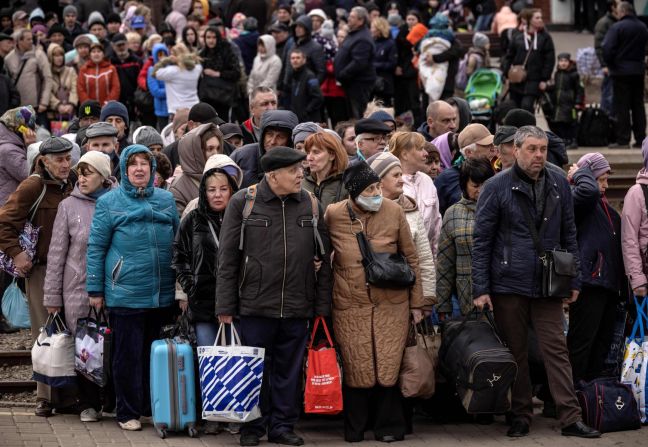
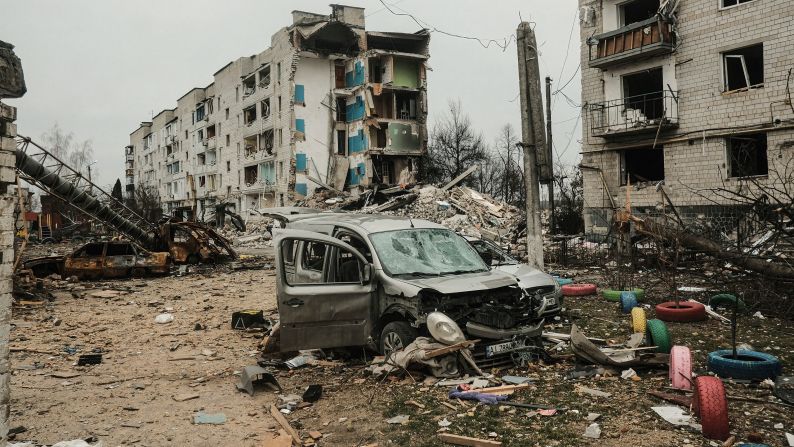
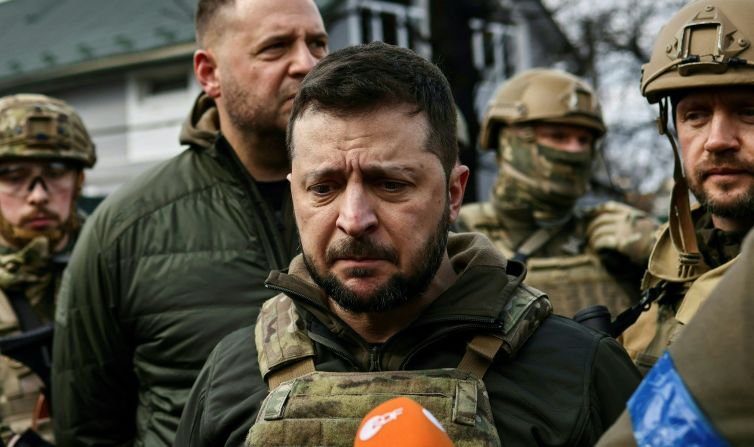
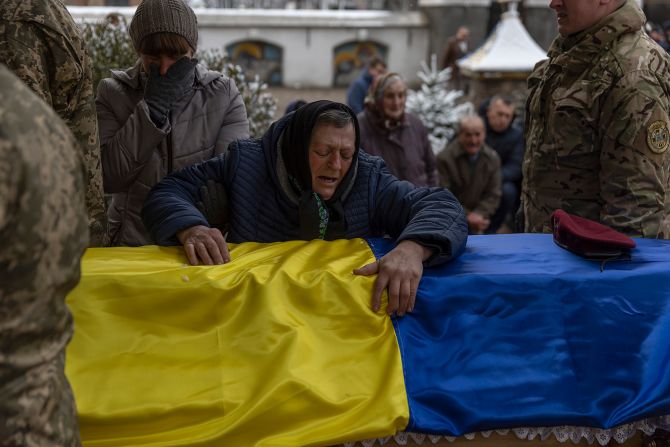
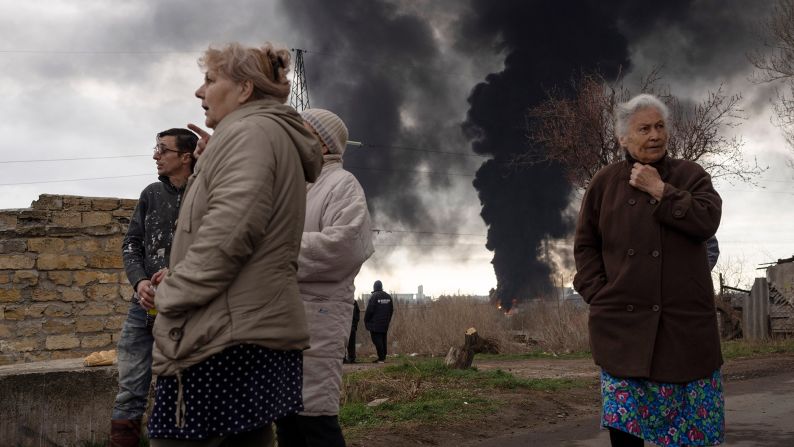
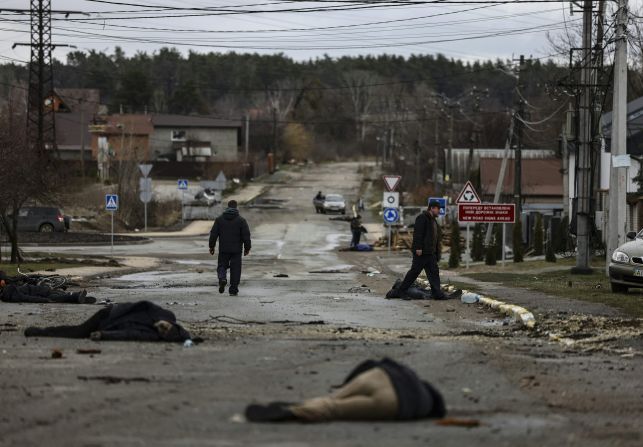
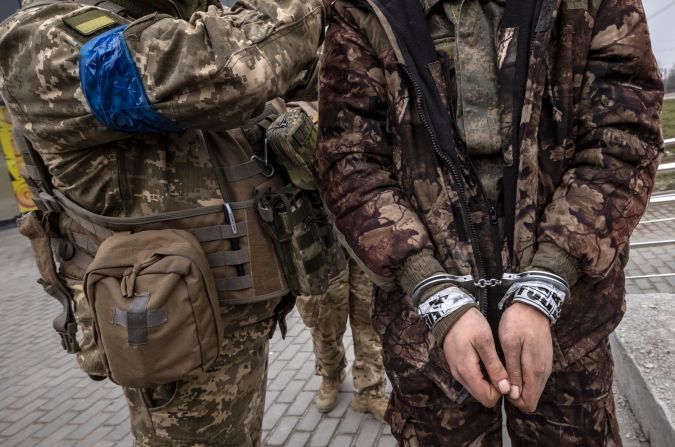
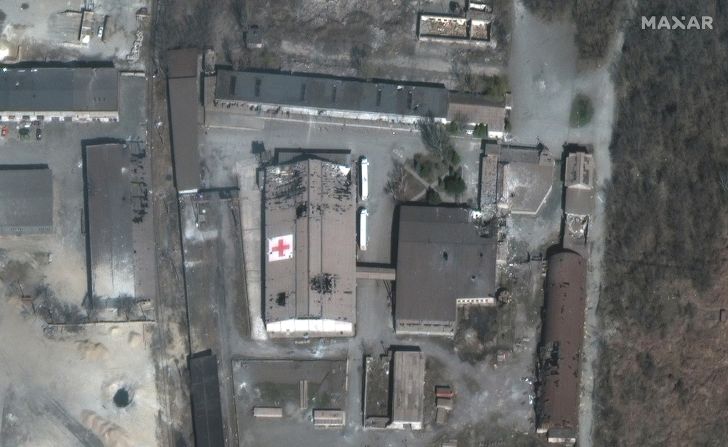
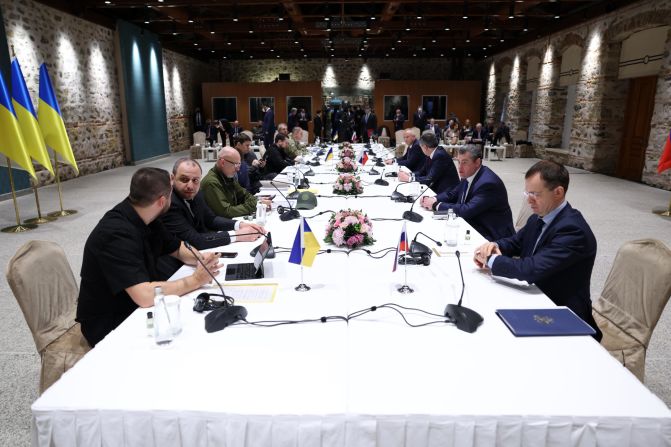
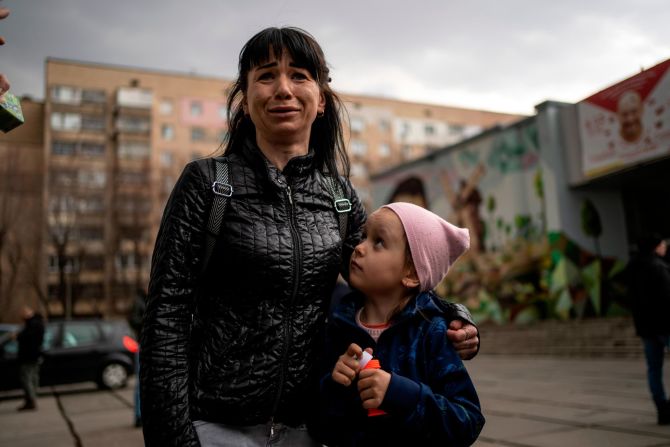
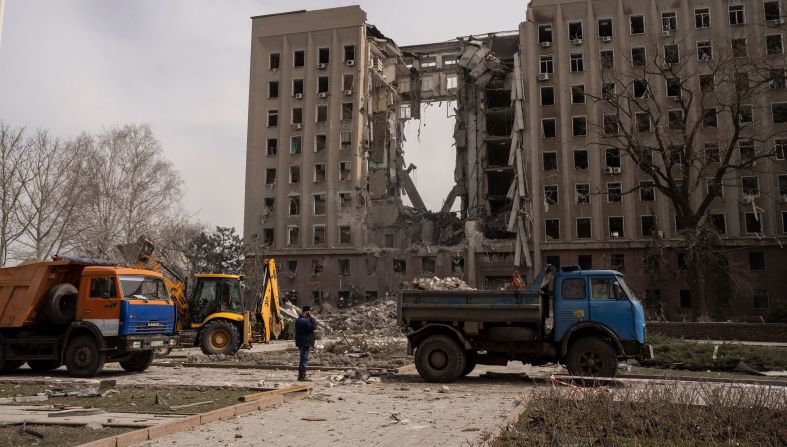
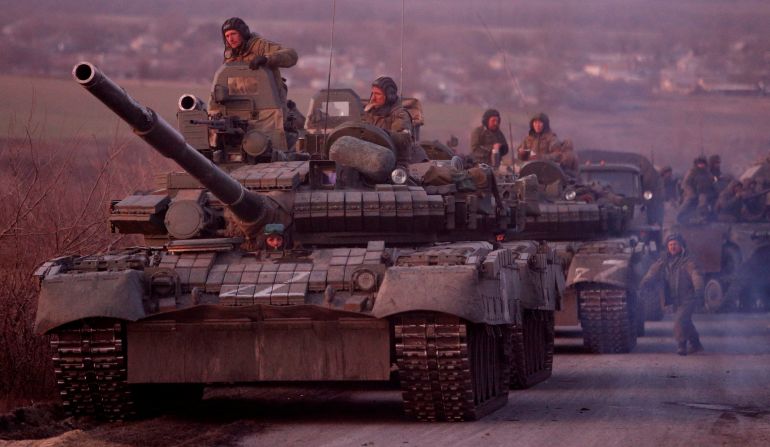

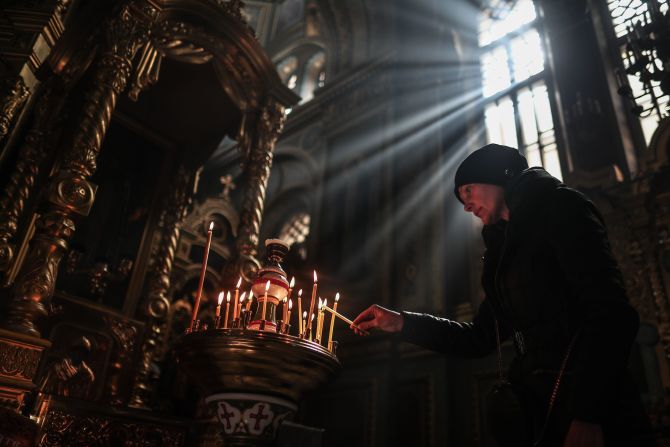
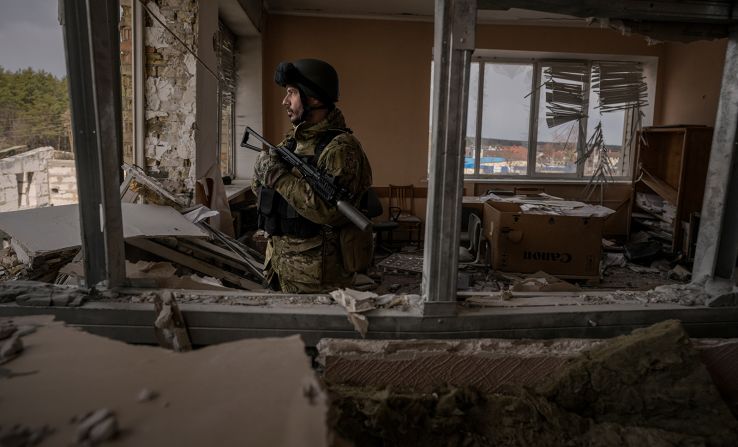
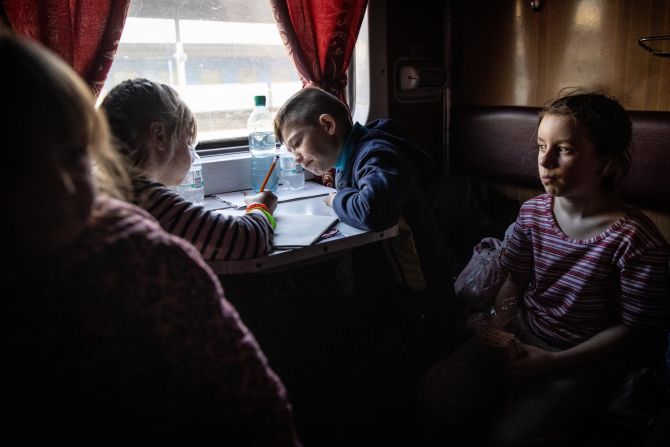
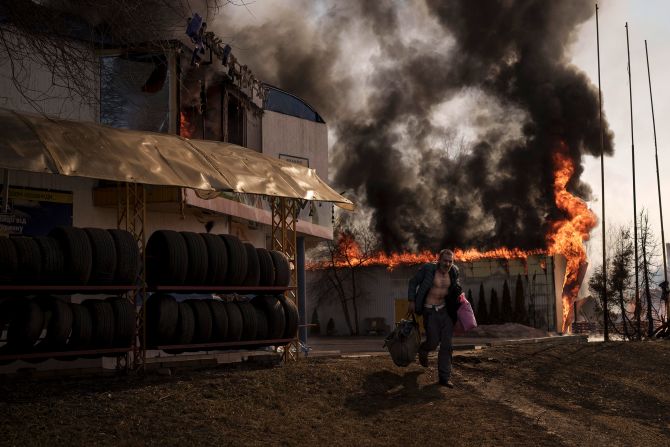
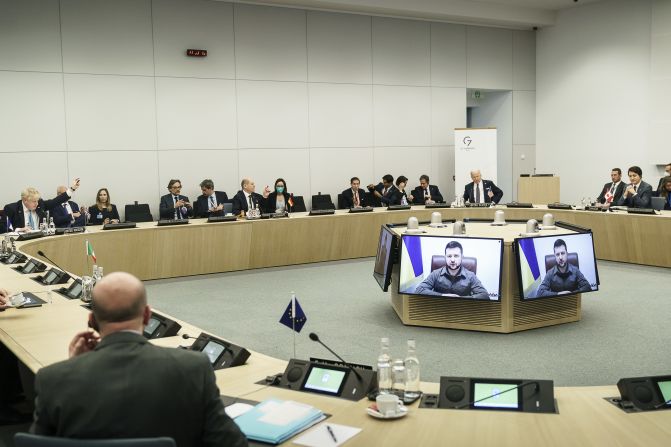
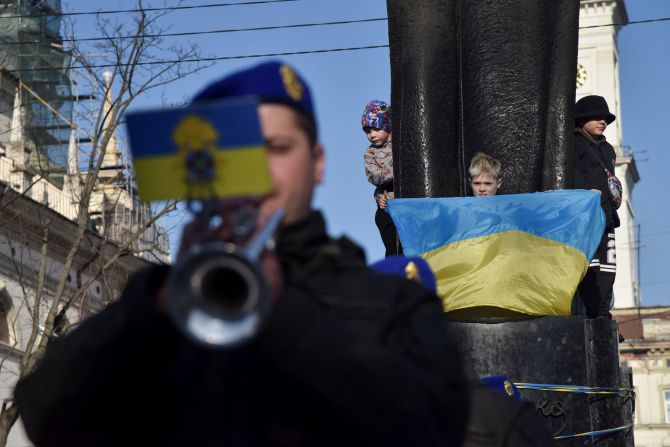
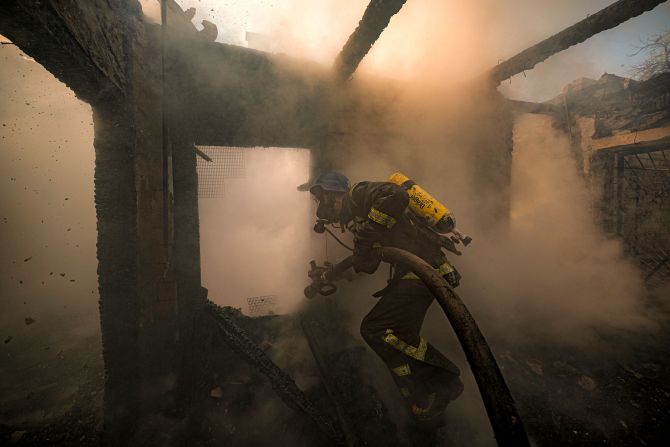
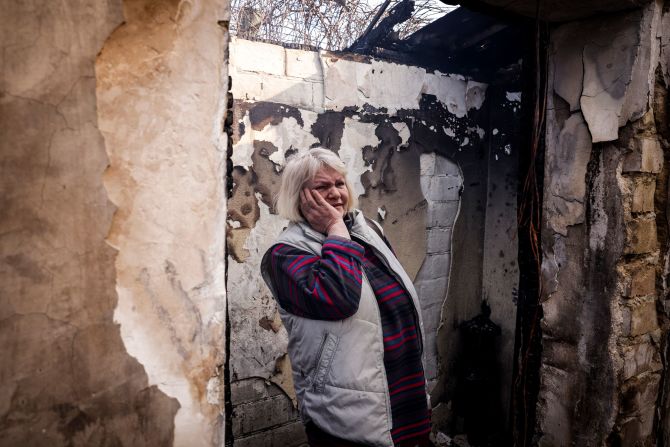
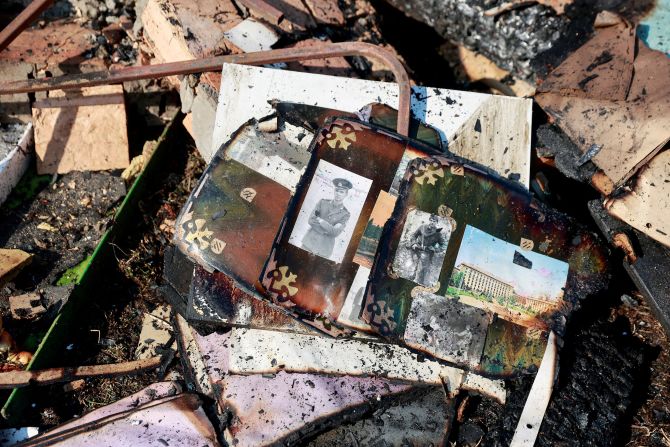
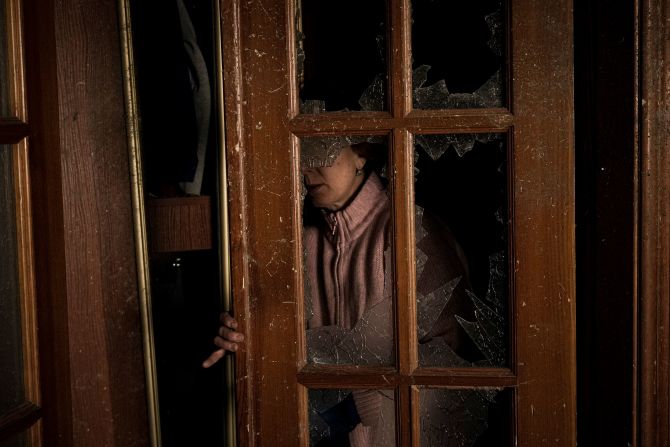
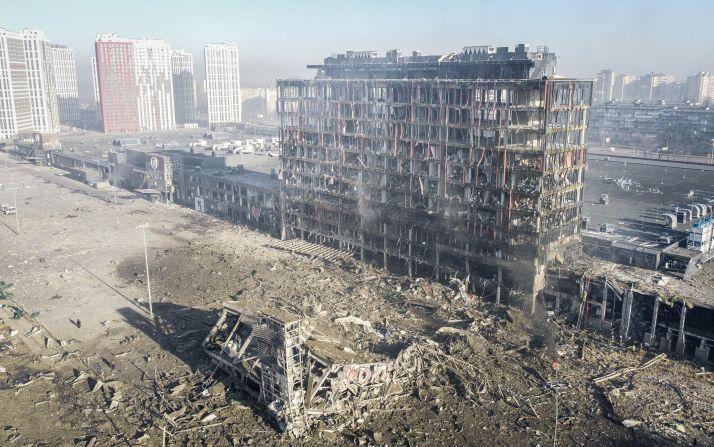

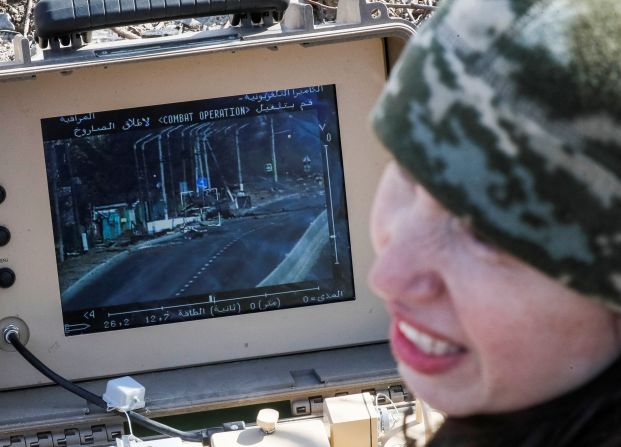
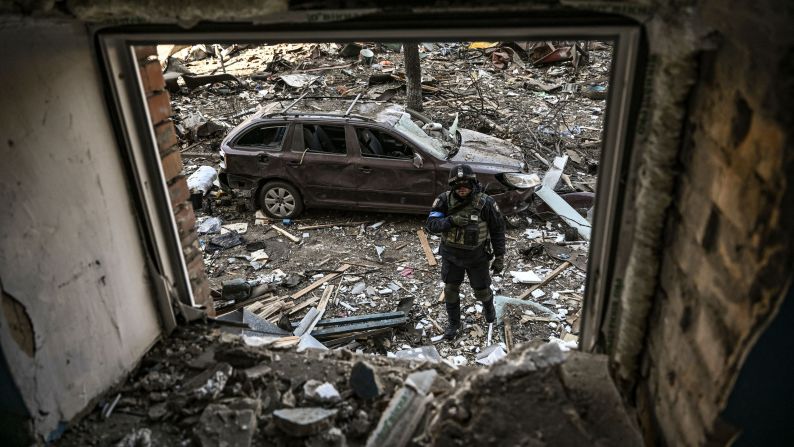
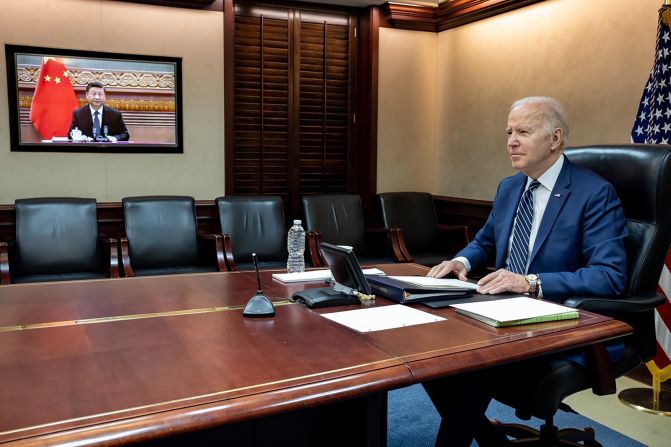
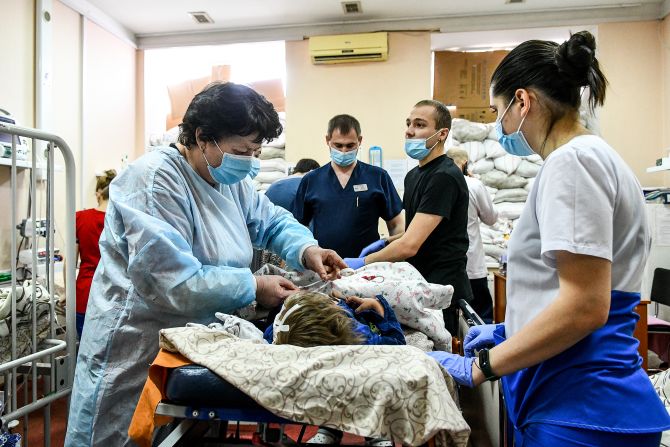
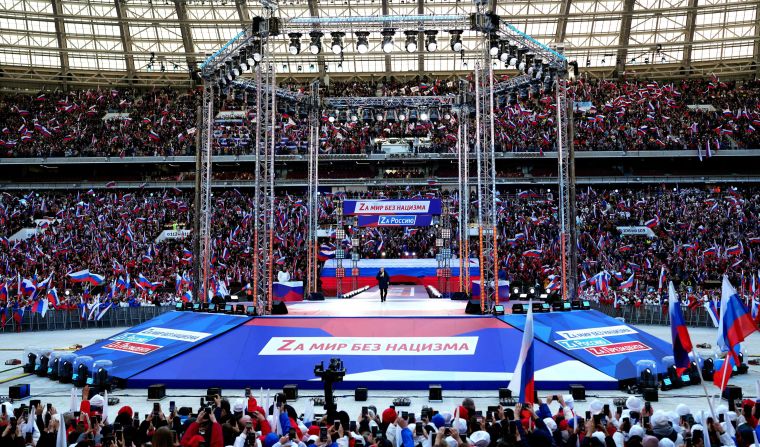
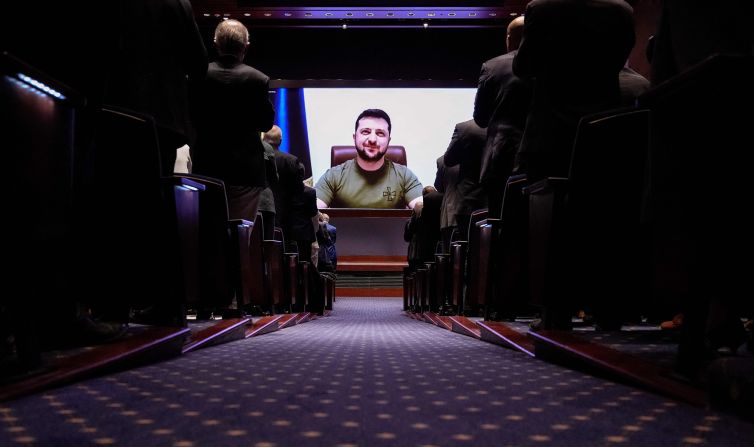
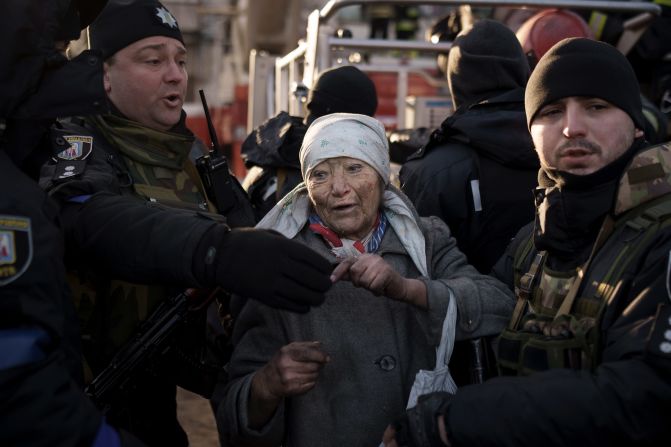
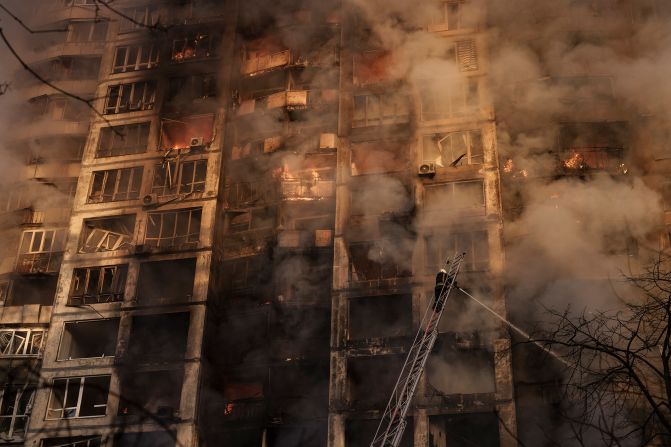
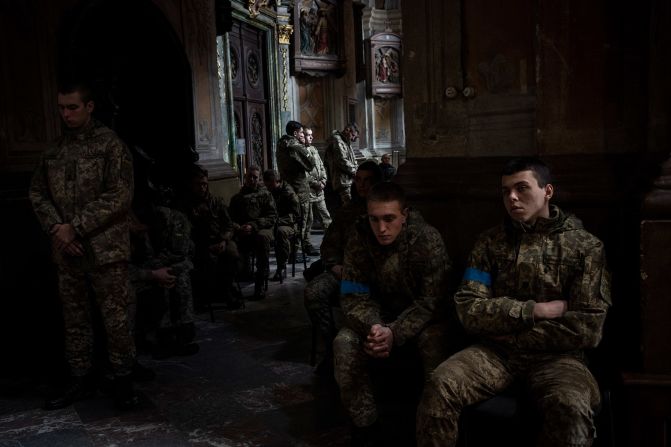



















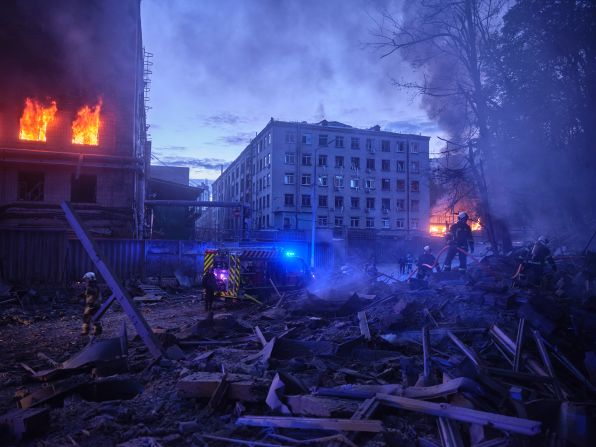
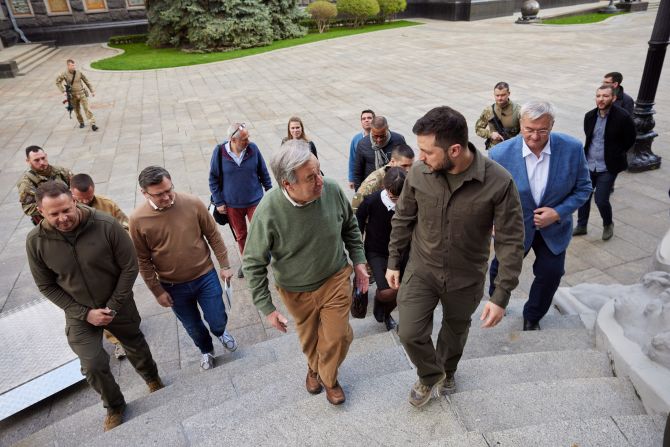








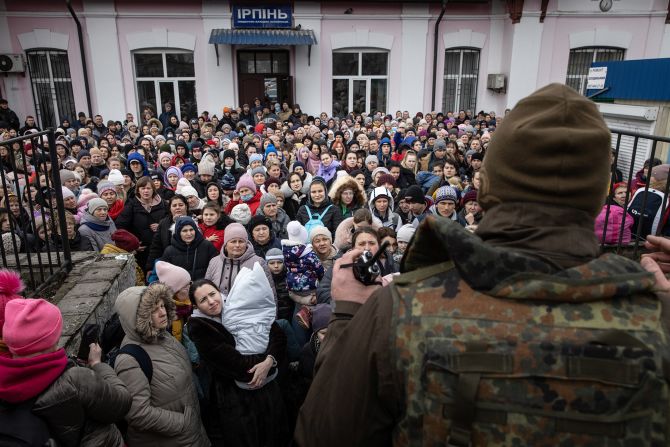






















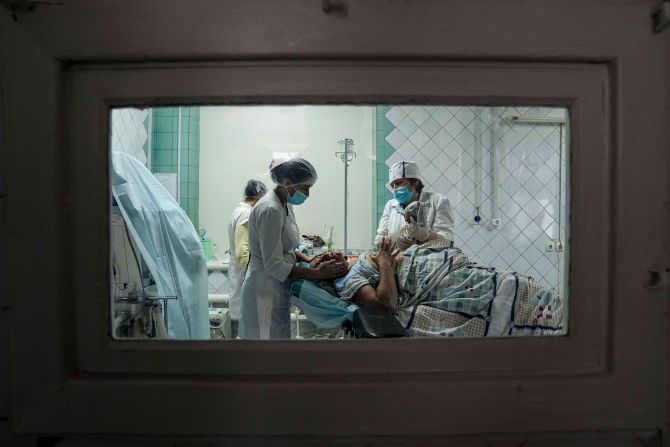

























































































In pictures: Russia invades Ukraine
Meanwhile in regions around the capital Kyiv, the humanitarian situation remains fraught.
“The main issue today remains humanitarian aid,” Oleksiy Kuleba, the head of the Kyiv Regional Military Administration, said in a YouTube video.
Residents of Bucha, Irpin, Gostomel, Makariv, Borodyanka and Vorzel are “forced to stay in bomb shelters for days without water and food,” he said, adding that Moscow is preventing “humanitarian evacuation despite agreements with ICRC (International Committee of the Red Cross) mediation.”
On Tuesday, Human Rights Watch (HRW) said Russian forces “violated their obligations under international humanitarian law not to conduct indiscriminate or disproportionate attacks that harm civilians,” following a report that eight civilians were killed over the weekend as they were trying to flee the Russian army’s advance in northern Ukraine.
That warning came after the UK Ministry of Defence, in its latest intelligence assessment. accused Russian forces of targeting evacuation corridors and killing “several civilians” trying to evacuate the town of Irpin.
Zelensky calls for help as Ukrainians flee west
Ukrainian President Volodymyr Zelensky criticized the international community for remaining on the “sidelines” of the Russian invasion.
Addressing the UK’s House of Commons on Tuesday via video, Zelensky said that “we will fight to the end,” echoing former British Prime Minister Winston Churchill’s famous wartime speech.
“We will fight in the forests, in the fields, on the shores, in the streets,” he said. Zelensky pleaded with British lawmakers to “strengthen the sanctions” against Moscow, requested that the UK recognize Russia “as a terrorist state” and reiterated his request with NATO to establish a no-fly zone over Ukraine.
NATO has assisted Ukraine with equipment and intelligence, but has resisted implementing a no-fly zone over its airspace.
NATO Secretary General Jens Stoltenberg said the military alliance has a “responsibility to ensure that the conflict does not spread beyond Ukraine” during a joint press conference in Riga with the Latvian President Egils Levits.
“That would be even more dangerous, destructive, and even more deadly,” said Stoltenberg. “The situation could spiral out of control,” he said.
On the ground, fighting continued in multiple locations as the Russian invasion neared the end of its second week.
In the southern city of Mykolaiv, regional administrator Vitali Kim asked residents to gather tires, which will be set on fire to impede Russian troop movement in the city.
“In order to limit visibility for the enemy vehicles in the city, I need tires at every intersection in the city,” Kim said in a message posted to Telegram. “If the vehicles break through in some direction, the task will be to go out and set fire to the tire so that there is smoke in order to limit visibility.”

The senior US defense official said Tuesday that Russian forces have not yet entered Mykolaiv, a key city that could be used as part of a coordinated assault against the city of Odessa, though there has been an increase in bombardment and shelling.
The official said that Russian forces are still trying to advance on the cities of Kharkiv and Chernihiv, but are still facing resistance and are making more progress in the south of Ukraine than elsewhere in the country.
In total Russia has launched “nearly 670” missiles since the beginning of their invasion, a separate senior US defense official told reporters on Tuesday.
Almost half of the missiles launched have been fired from Russia, “the other half largely from inside Ukraine,” the official said. “A little bit more than 70” missiles have been fired from Belarus, and “only a half dozen or so” are coming from the Black Sea, the official added.
A humanitarian crisis keeps growing
Meanwhile, the humanitarian effect of Russia’s invasion were also laid bare on Tuesday, when UN High Commissioner for Refugees Filippo Grandi told French radio station France Inter that more than 2 million people have fled Ukraine since the conflict began.
The milestone is a “terrifying” number, said Grandi. Most of the refugees have traveled to Poland, Moldova and other neighboring countries “where they have connections, family,” he added.
“What worries me, what we fear is a second wave of persons who have a good deal less resources and connections and who will be much more vulnerable,” said Grandi.
At least 1.2 million refugees have crossed the border from Ukraine into Poland since the invasion began, the Polish Border Guard tweeted Tuesday, with 141,500 entering on Monday alone.
CNN’s Tim Lister, Olga Voitovych, Esha Mitra, Swati Gupta, Anastasia Graham-Yooll, Michael Conte, Ellie Kaufman, Niamh Kennedy and Antonia Mortensen contributed to this report.

